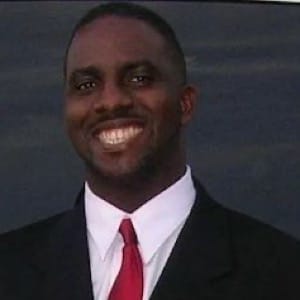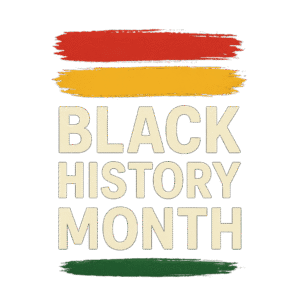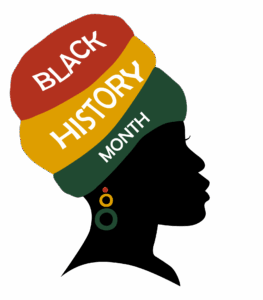Diverse Voices: Vietnamese Community Celebrates Buddha’s Birthday
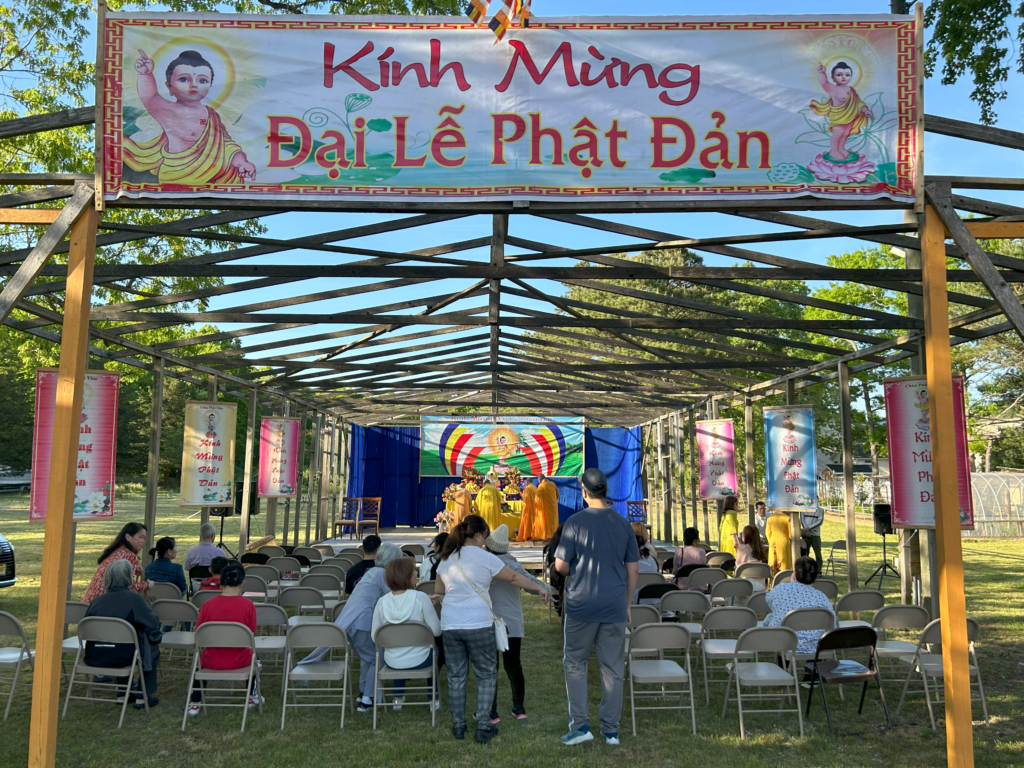
BY DANIEL WINNER | Front Runner New Jersey Correspondent
The Vietnamese American community in South Jersey put on quite a performance this year to celebrate a very special holiday for a faith that originated 2568 years ago. Buddhist Mind Temple in Egg Harbor Township and Thanh Tu Meditation Center in Williamstown were thoroughly adorned with colorful decorations, flowers, and live music with both singers and dancers who came together to observe Buddha’s Birthday.
Buddhism is a religion founded by Siddhartha Gautama, an abdicated prince who became a wandering mendicant in search of a way to end suffering for all living beings. Upon awakening to ultimate truth and the highest wisdom, he became known as “the Buddha” which literally means “the awakened one.” It was estimated in 2020 that there are 535 million Buddhists worldwide, comprising 8-10% of the global population. This makes Buddhism the world’s fourth-largest faith tradition, with the majority of believers living in Asia.
What is Buddha’s Birthday?
The Buddhist world varies by country and denomination regarding the day of the prince’s birth. In much of East Asia, which adheres to the Mahayana tradition, he was born on the 8th day of the 4th lunar month in the Chinese calendar. In Japan, where the Gregorian calendar became standard in 1873, the traditional date was adjusted to April 8.
In Southeast Asian countries, which primarily follow the Theravada tradition, Buddhists celebrate the Buddha’s birth, enlightenment, and parinirvana on the full moon during a holiday called Vesak, a name which derives from the Indian month of Vaishakha. The Vietnamese name for the holiday is “Le Phat Dan” (pronounced “Lay Fut Dahn”), literally “Celebration of Buddha’s Birthday.”
The festival has become mainstream in many parts of the world. The White House held its fourth annual Vesak celebration on May 23, hosted by Second Gentleman Doug Emhoff. The United Nations (UN) General Assembly recognized the International Day of Vesak by its resolution 54/115 beginning in 1999. The day is commemorated annually at the UN Headquarters and other UN offices.
It is common in East Asian traditions to celebrate the holiday through a ritual of pouring water over an image of the infant Buddha. This is reminiscent of the Buddhist nativity story. While the Buddha’s mother, Queen Mahamaya, was traveling to her home city, she fell into labor while in Lumbini, Nepal. A tree in a nearby garden miraculously bent down in supplication, allowing her to reach its branch. As she held herself upright, the child emerged from her right side and took seven steps, upon which lotus flowers blossomed.
The heavens opened up, revealing an entourage of gods and dragons, who rained down flowers and perfumed water to bathe the newborn. According to one tradition, the young prince then raised his left arm to the sky and pointed his right arm to the ground, eloquently proclaiming, “Throughout the heavens above and the earth below, I alone am the honored one.”
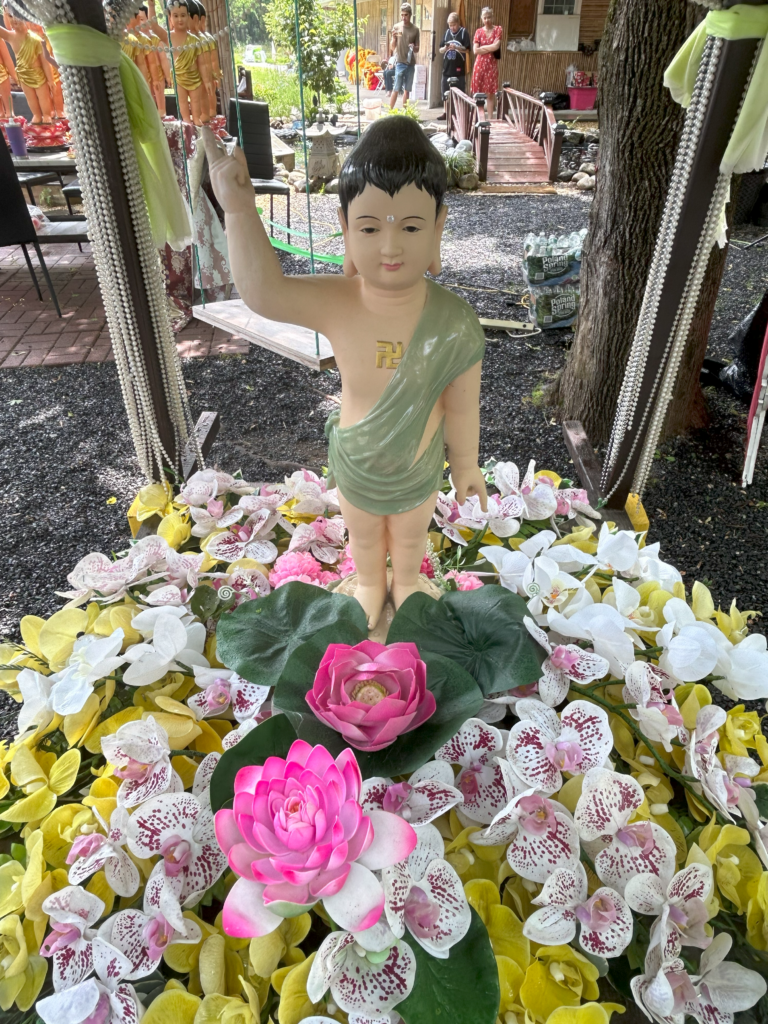
Buddhist Mind Temple (Chua Phat Tam)
The Vietnamese community in Egg Harbor Township began celebrations on May 21 at Buddhist Mind Temple, a branch of the Buddha Blessed Temple in Louisville, KY. The recital included the traditional lion dance, as well as children’s dance and vu phien fan dance from the girls of the Sovereign Avenue School Asian Club and Dynesty Alliance in Atlantic City.
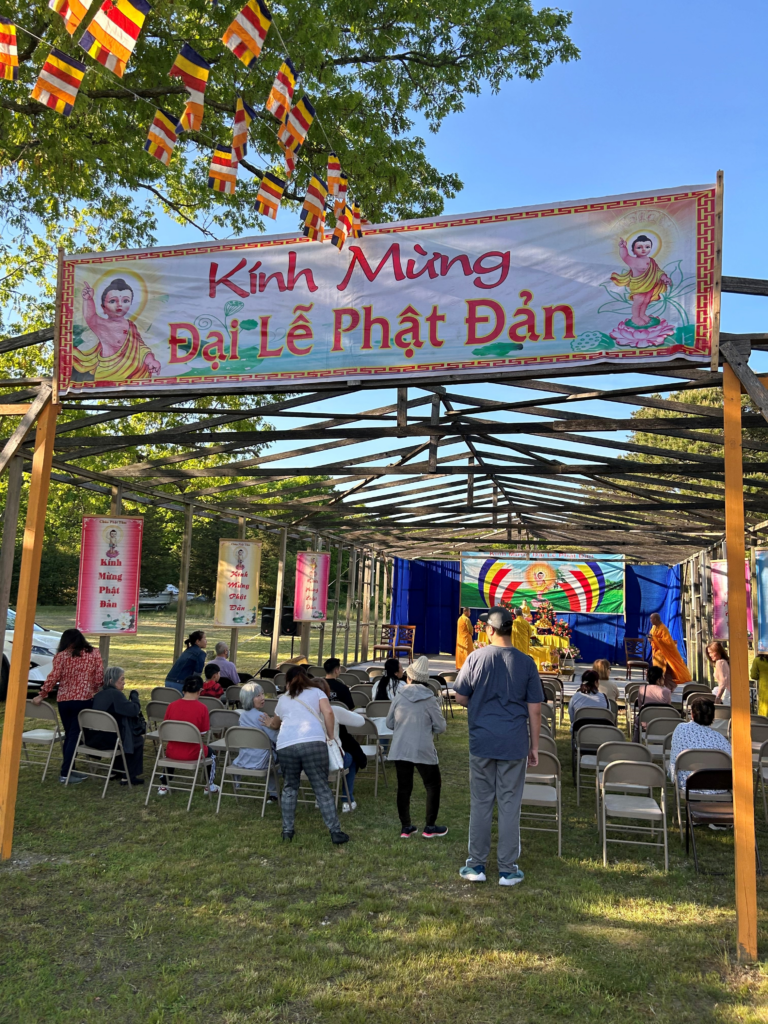
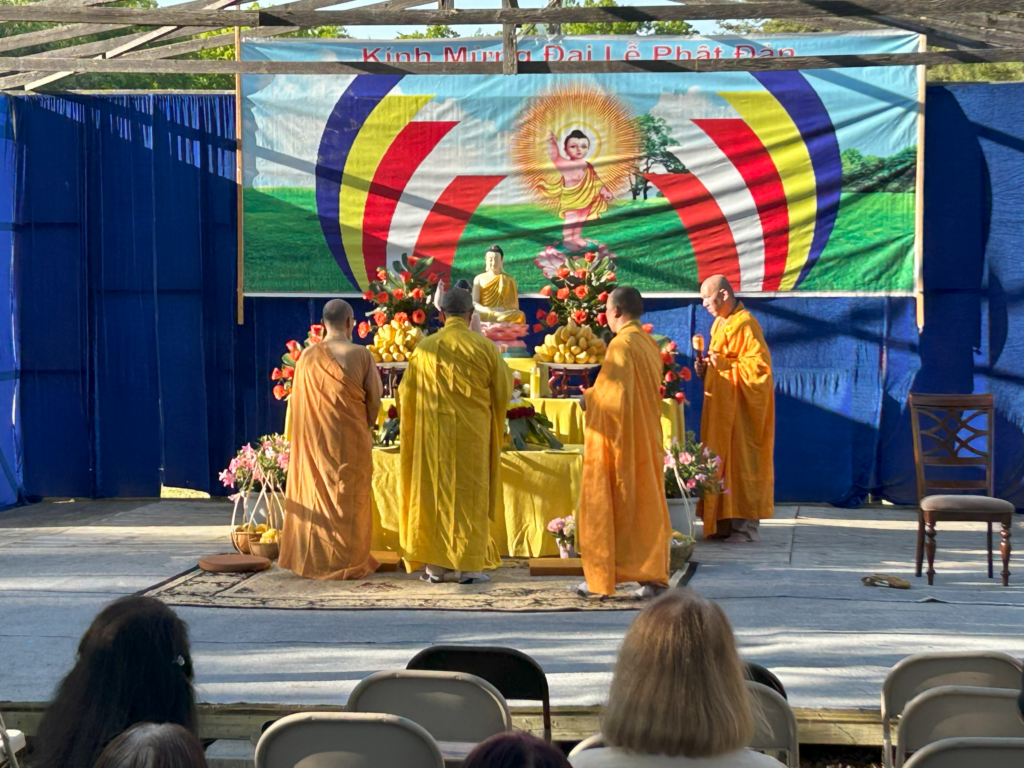
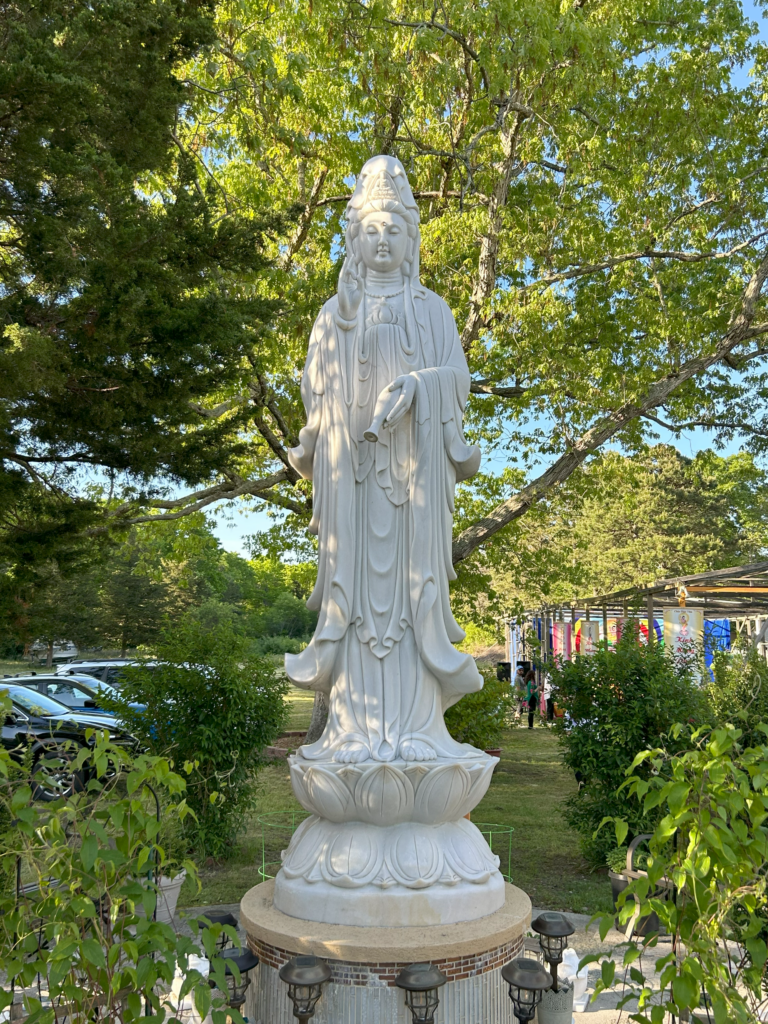
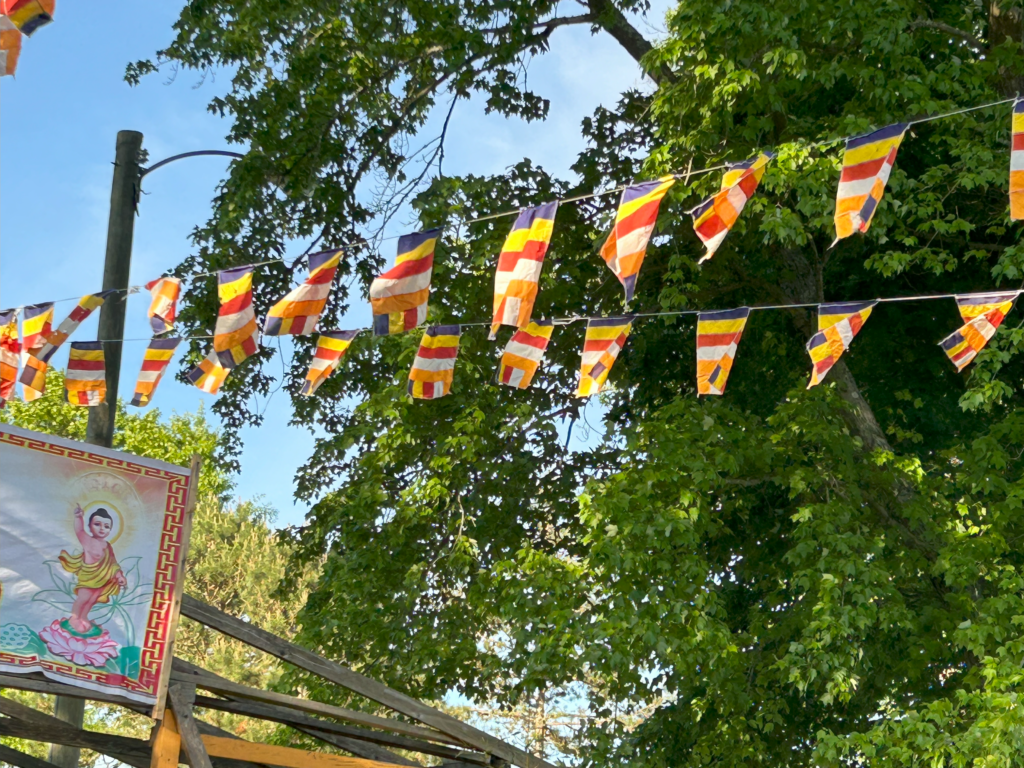
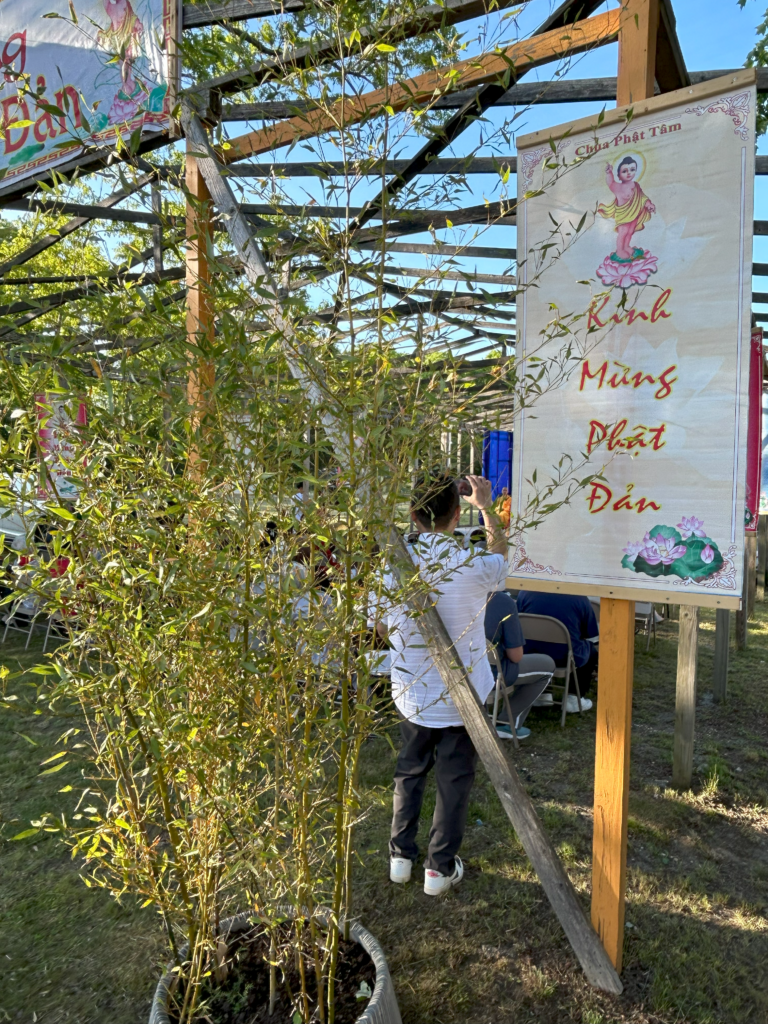
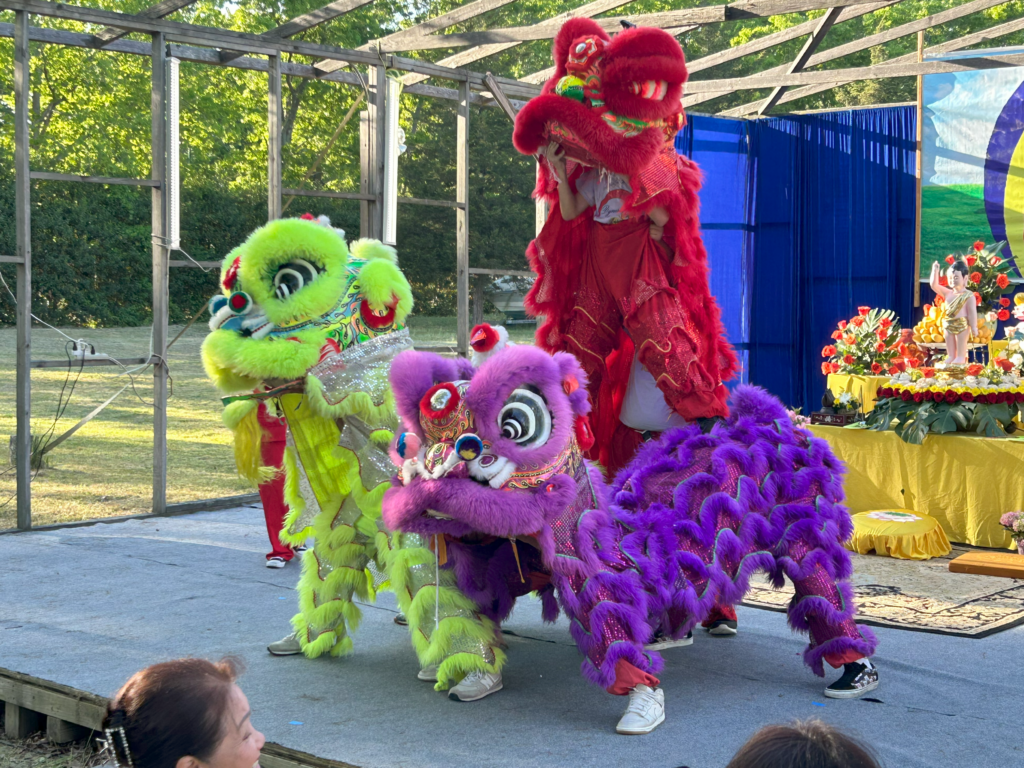
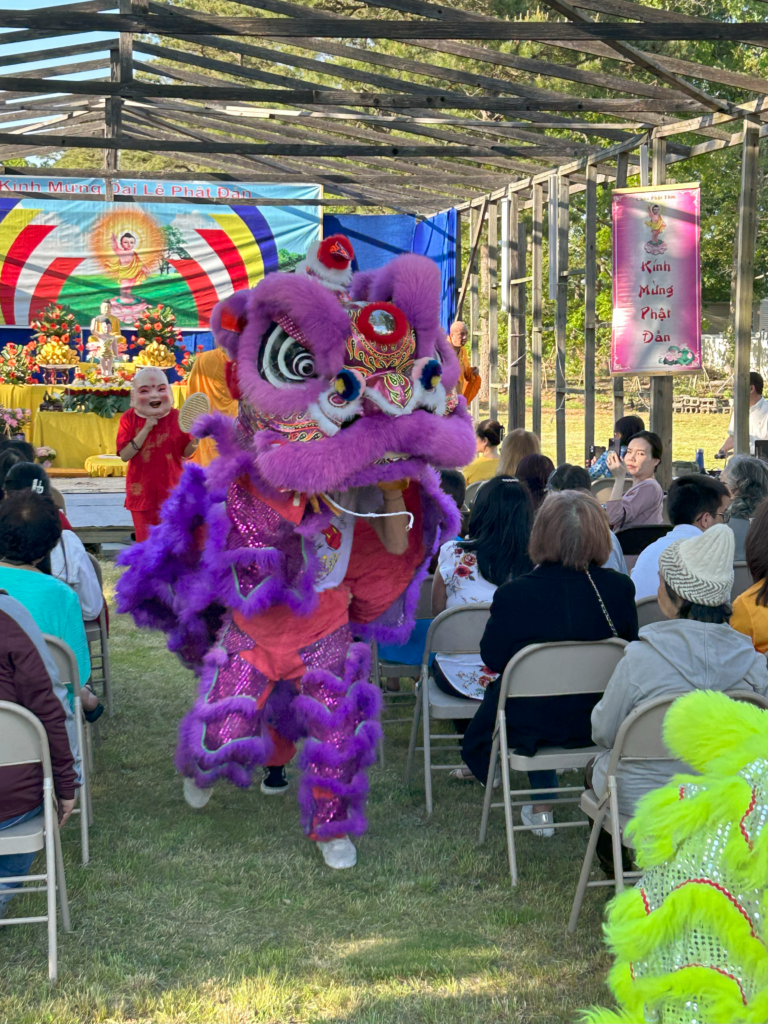
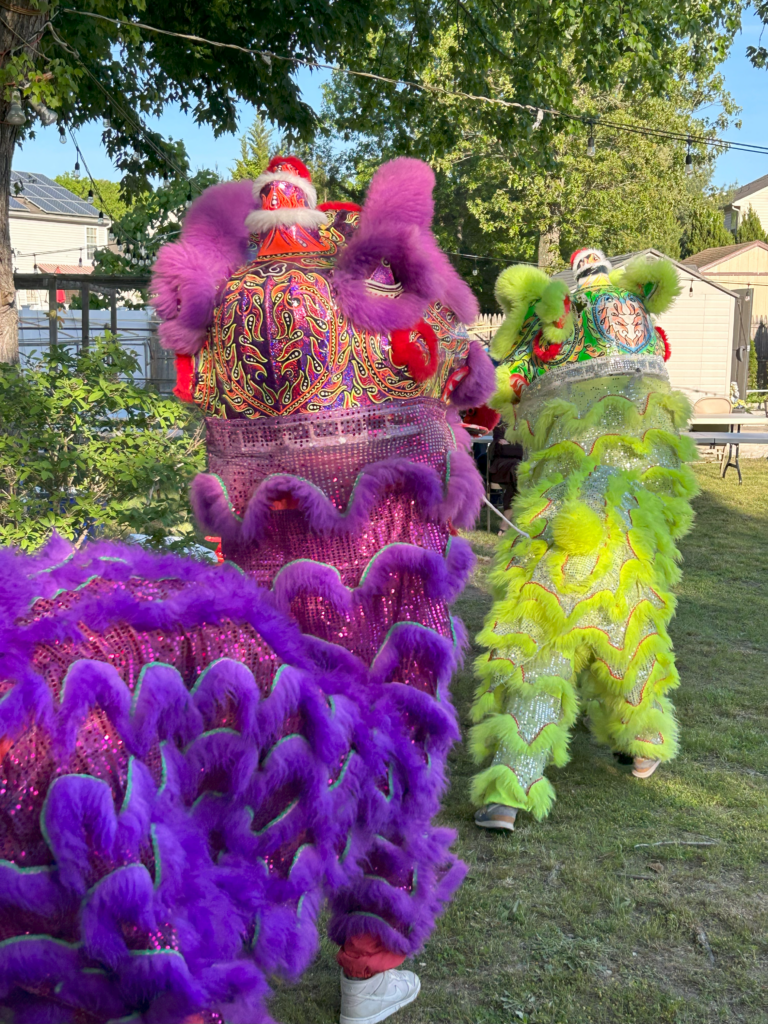
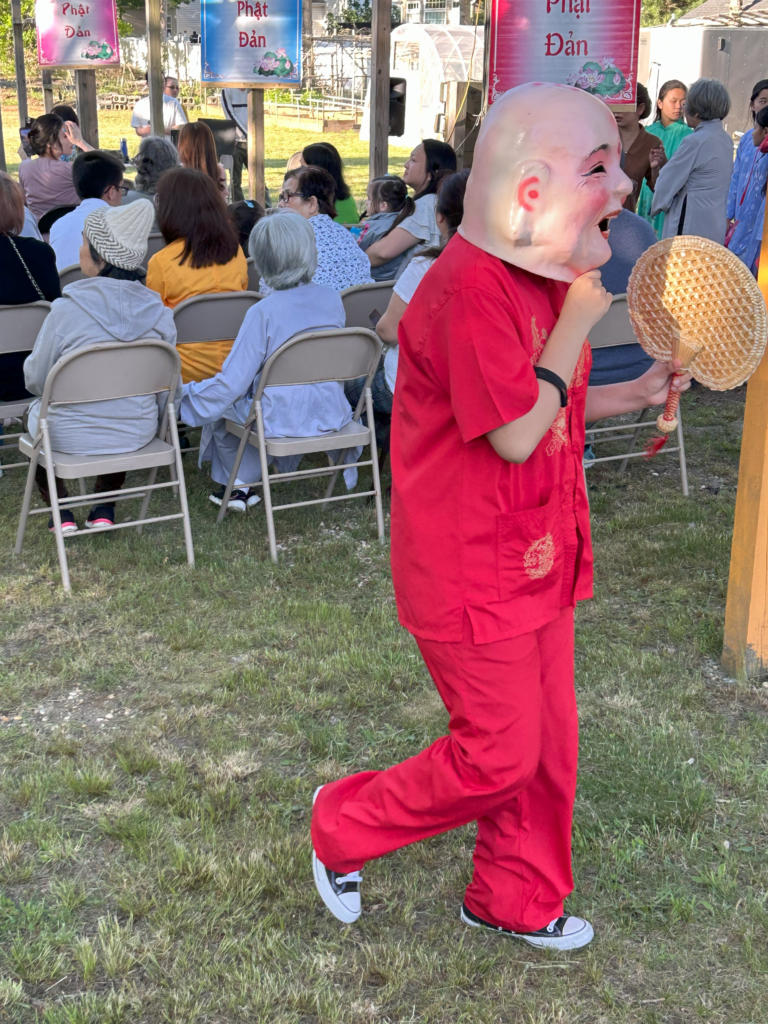
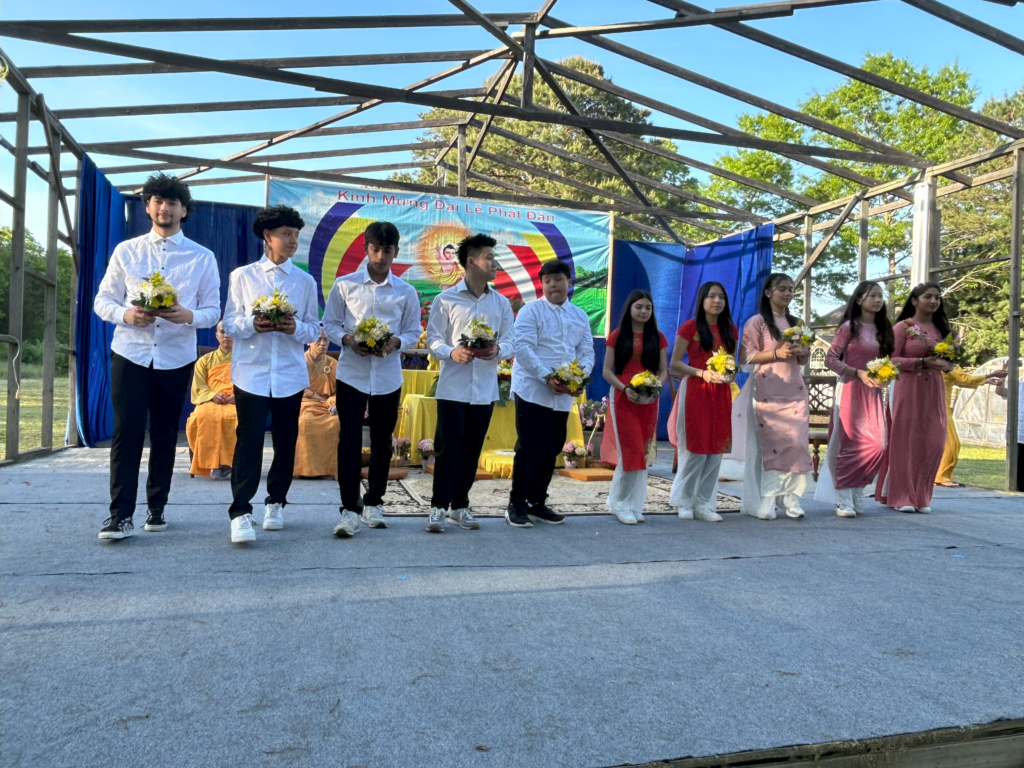
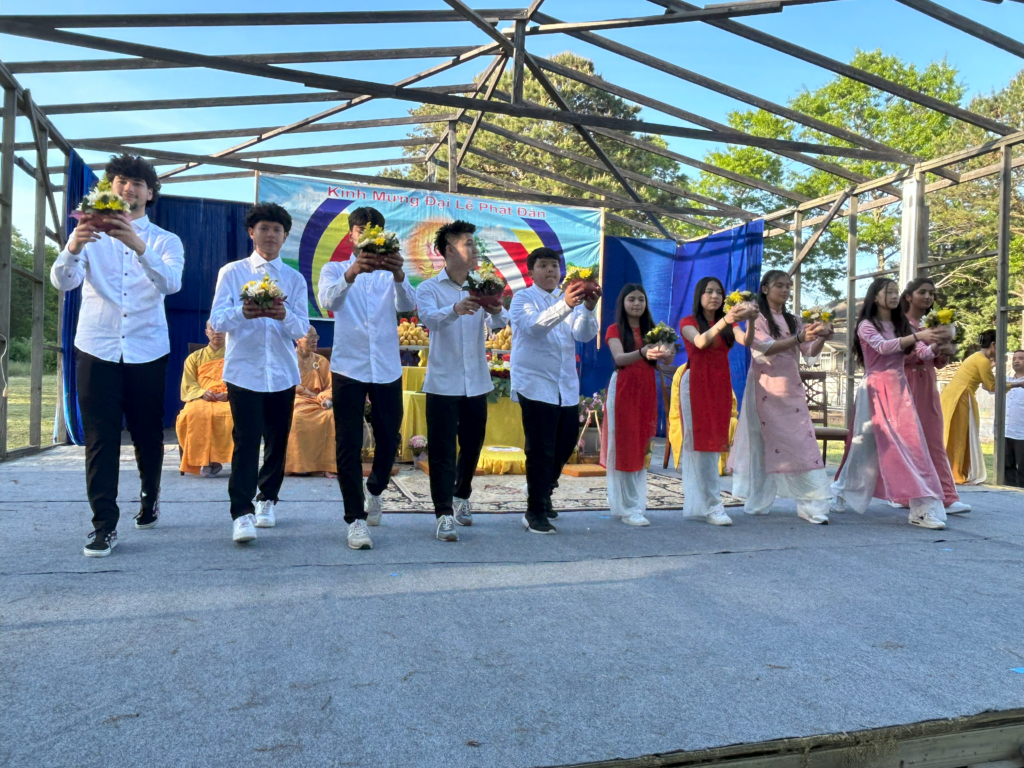
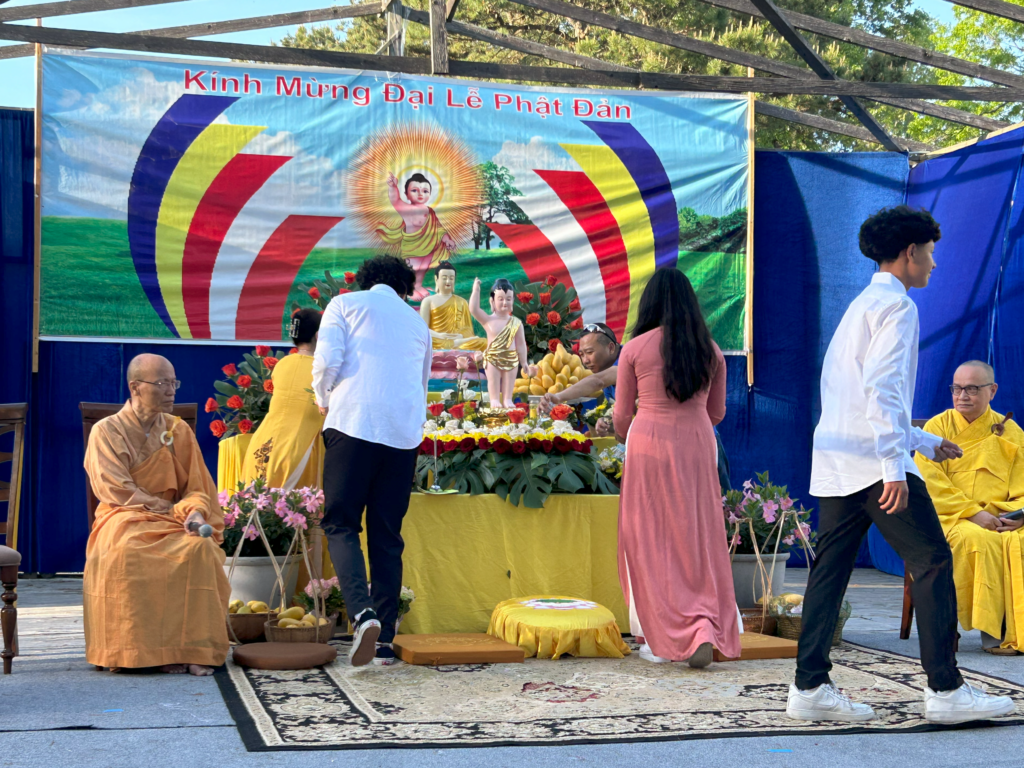
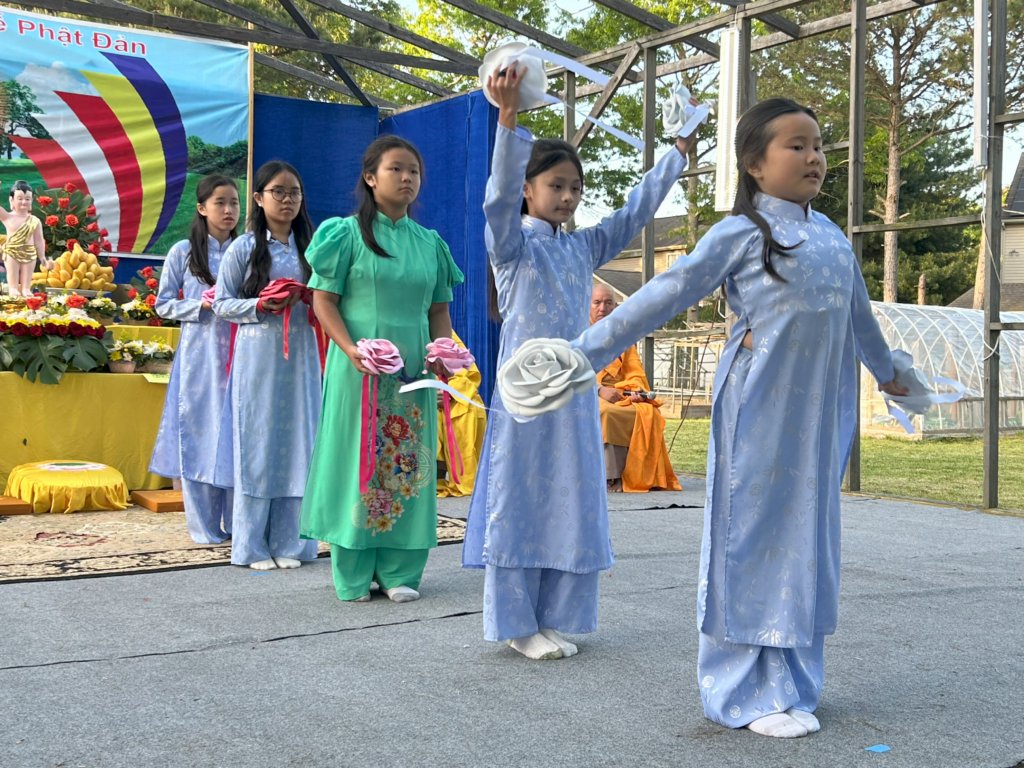
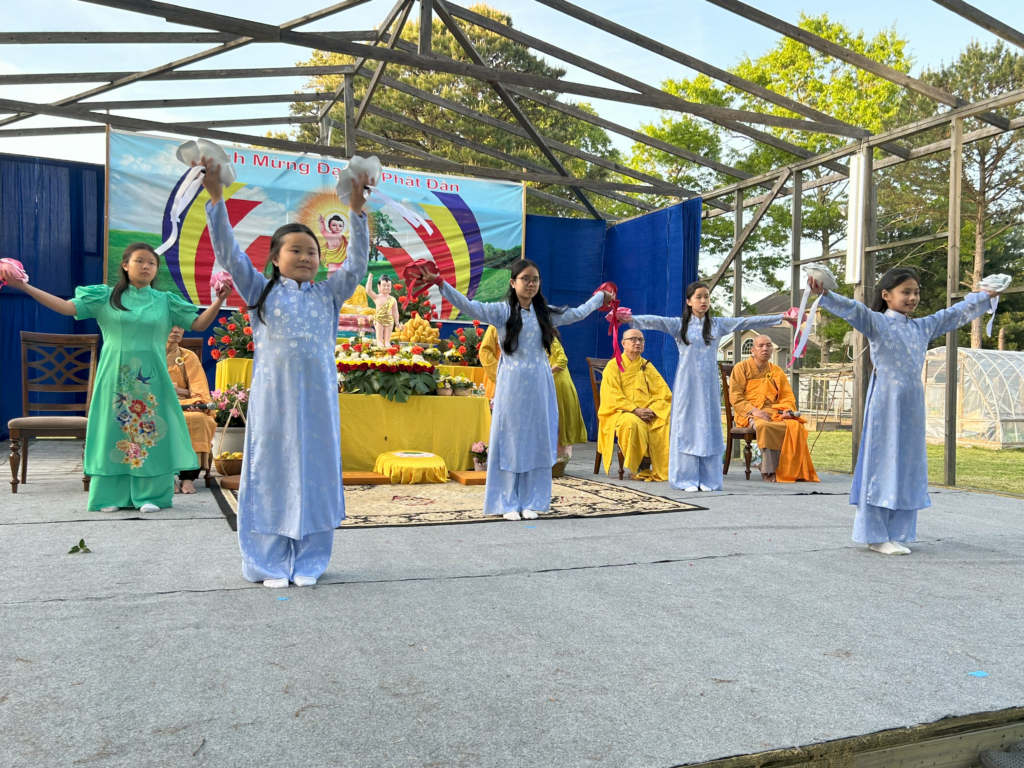
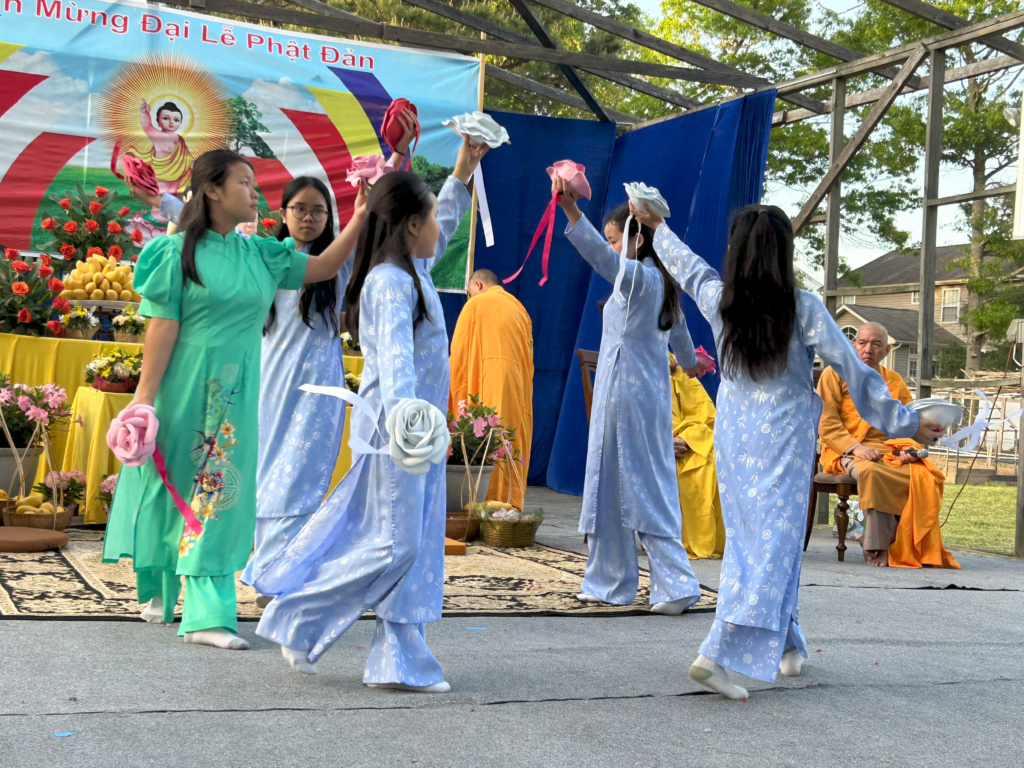
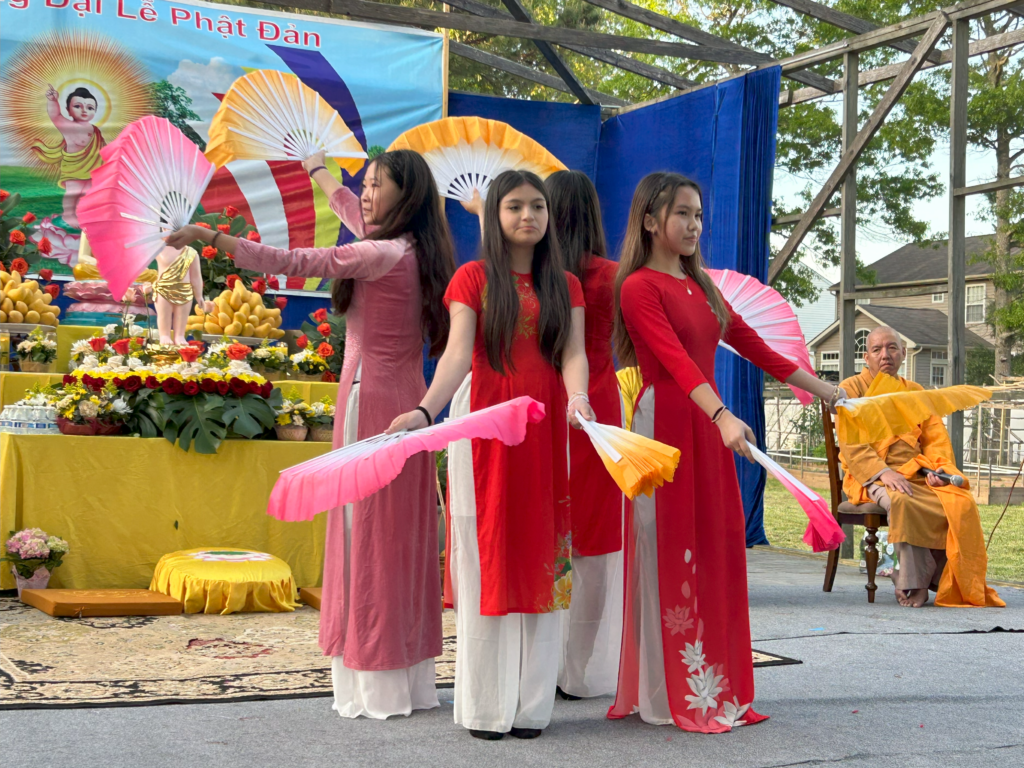
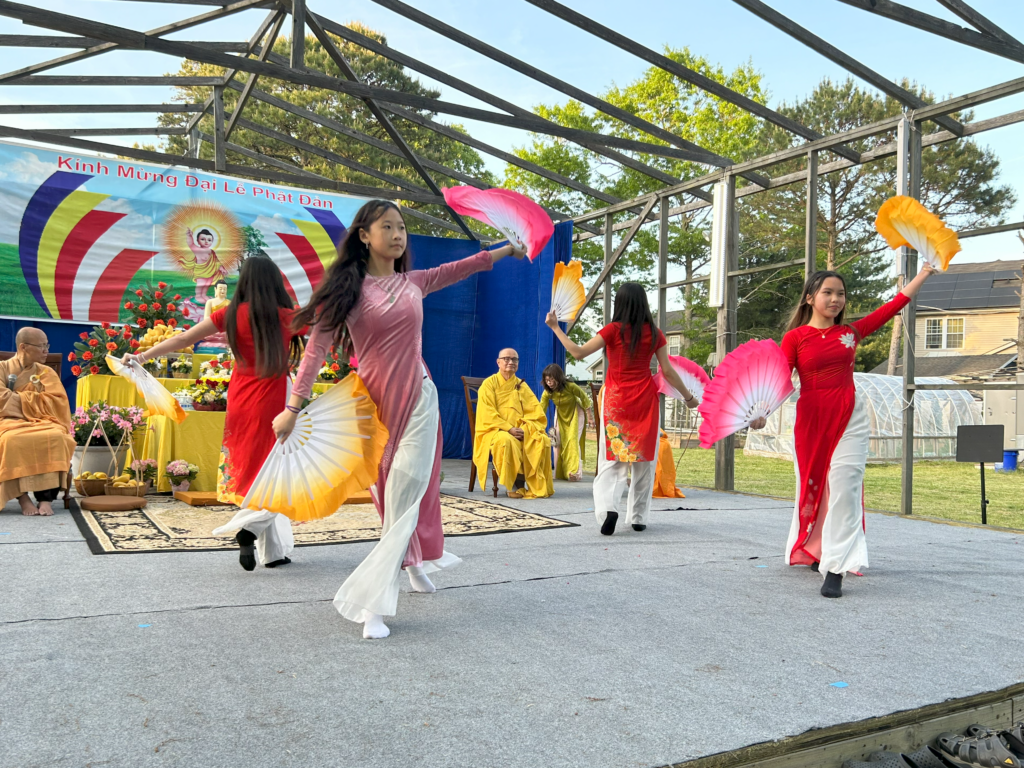
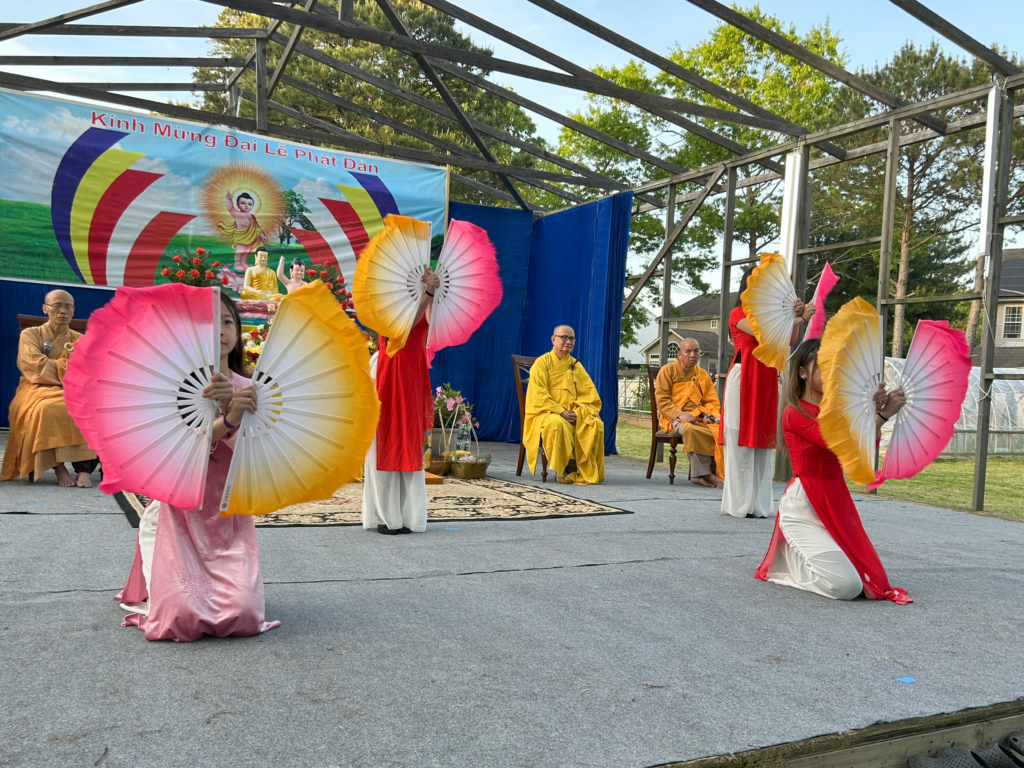
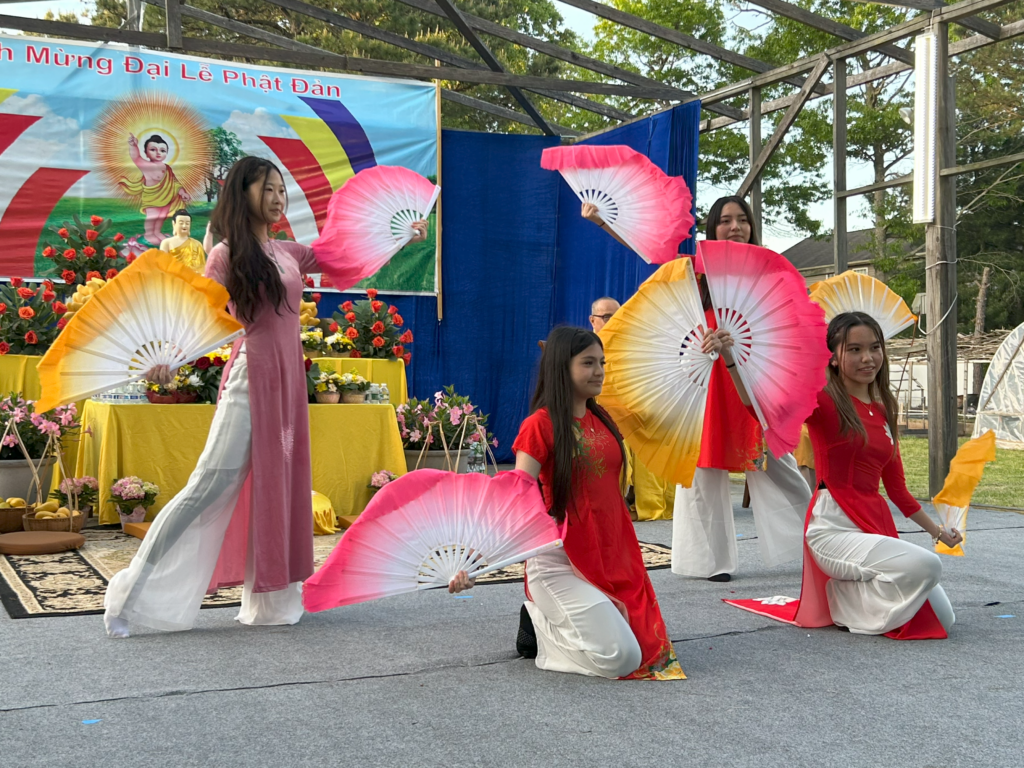
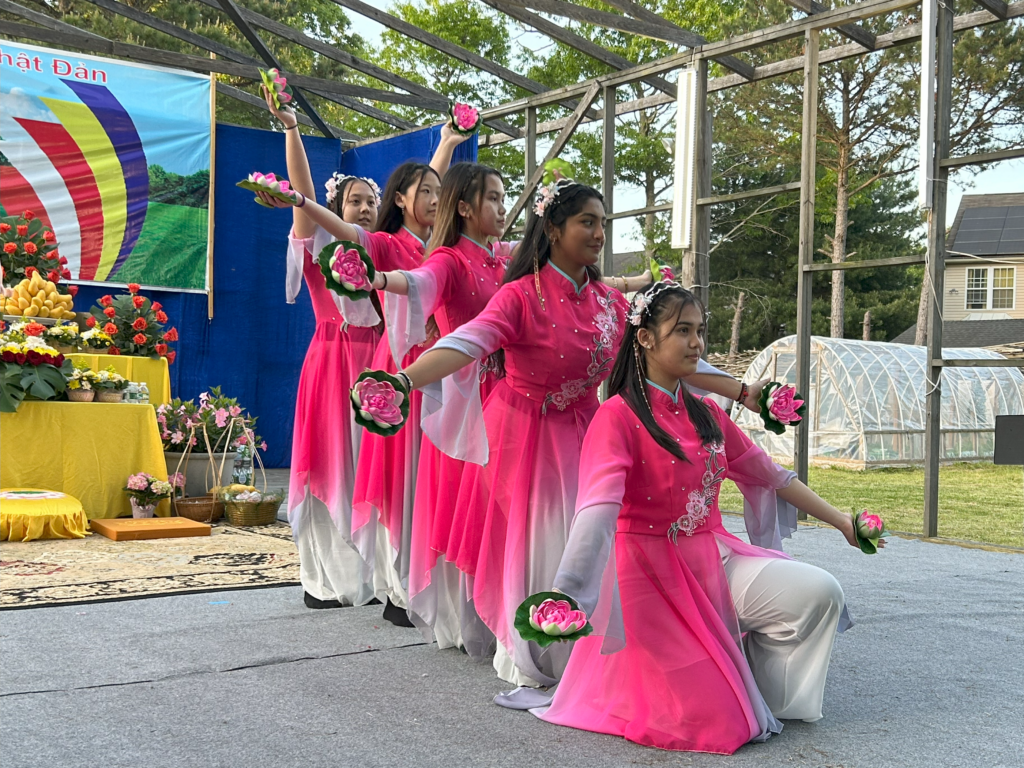
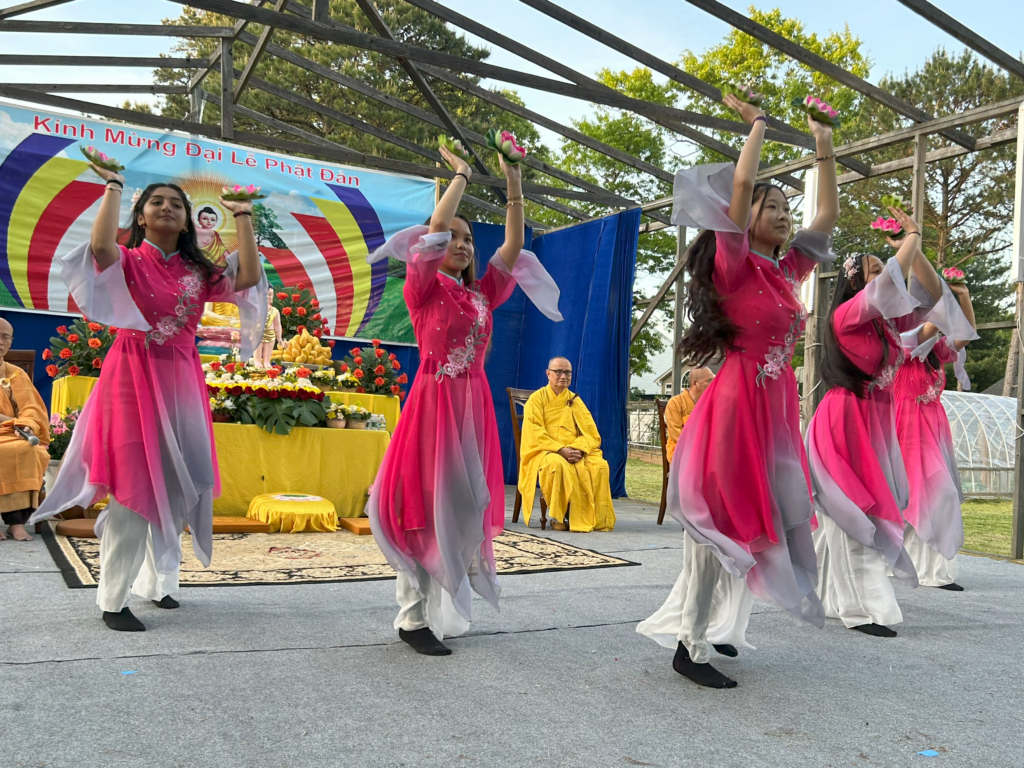
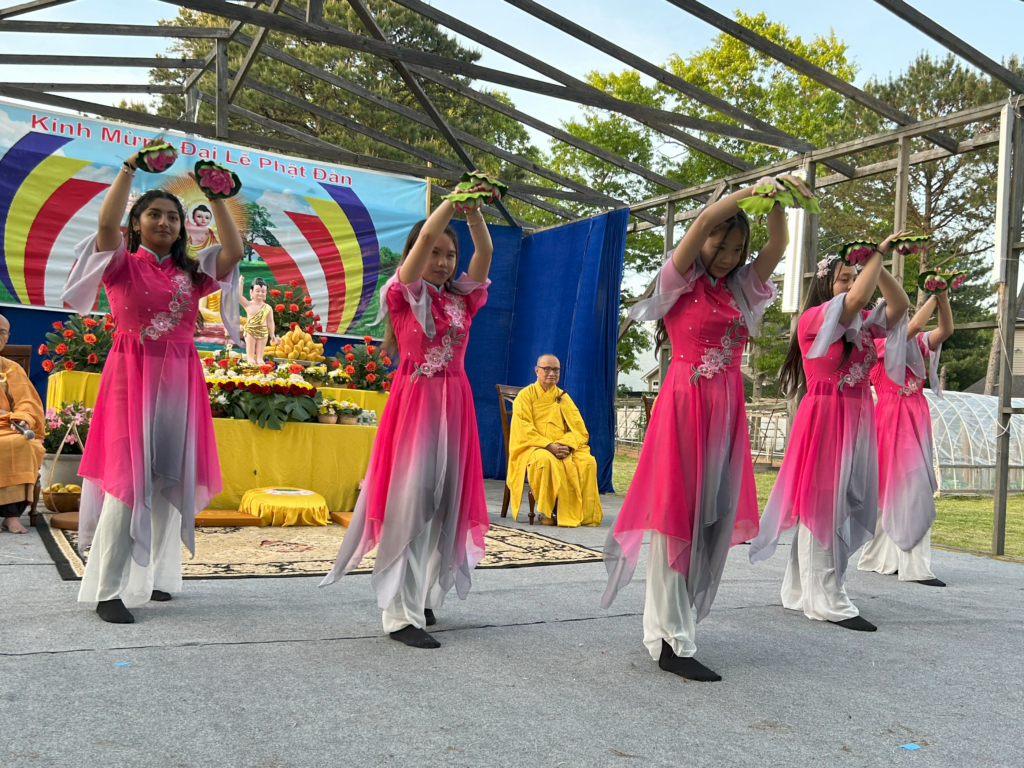
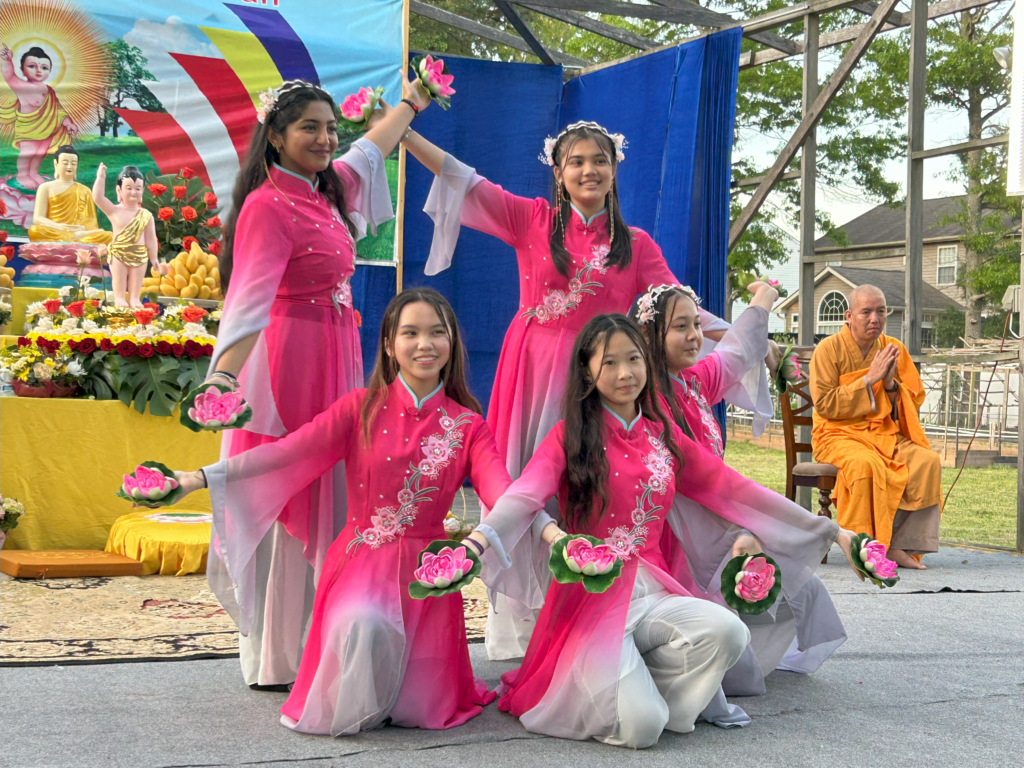
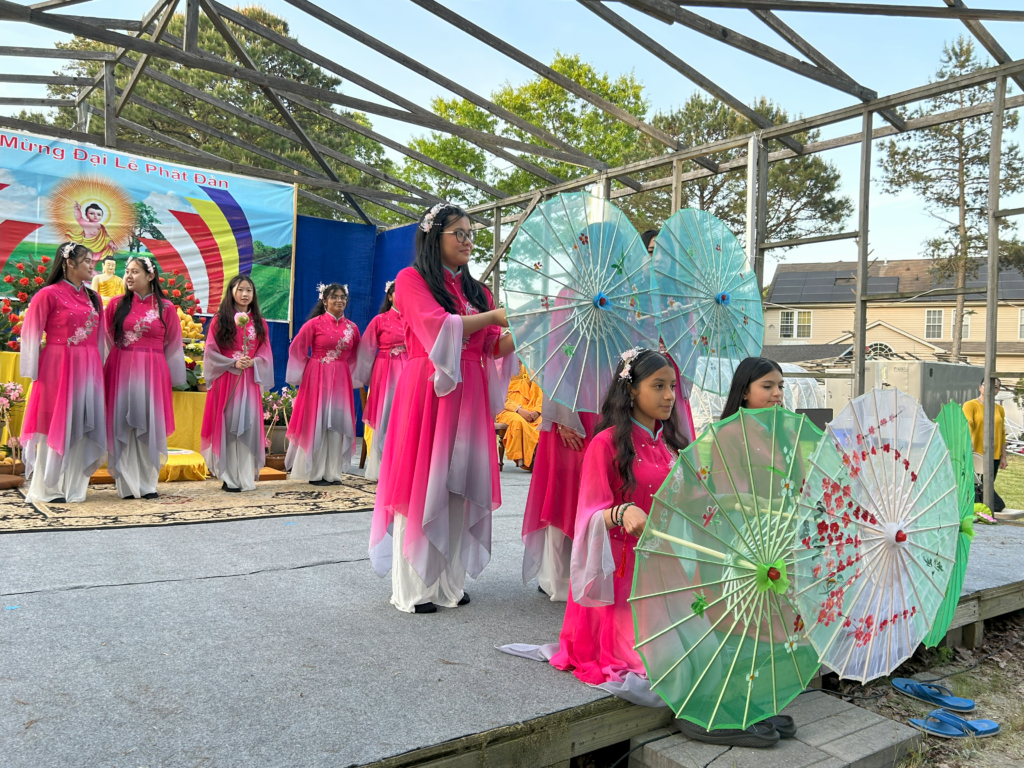
The abbot of the temple, Dr. Rev. Thich Hang Dat (pronounced “Tick Hang Daht”), oversaw the main ceremony with three fellow monks. Rev. Dat serves as a teacher at the University of Houston, Indiana University Southeast, Indiana University South Bend, and Indiana University Kokomo. He was a student of the eminent monk Ven. Hsuan Hua, founder of the Dharma Realm Buddhist Association and leading master of the Guiyang school of Chan/Zen Buddhism. As a bilingual speaker of English and Vietnamese, Rev. Dat addressed the community between performances with explanations of cultural heritage and short “Dharma talks” or sermons.
“Without controlling the mind, it’s not easy for us to function, especially if you watch all kinds of stories on YouTube, or on the internet,” he said, prepping the audience for the benefits of meditation. “Someone, because of their anger, they can shoot their employers if they were fired by them. Or they can kill their spouse, they can kill their family members or friends because of that anger. The corresponding greedy people, they live with that type of greedy mind to get wealth and money for themselves without thinking of others.
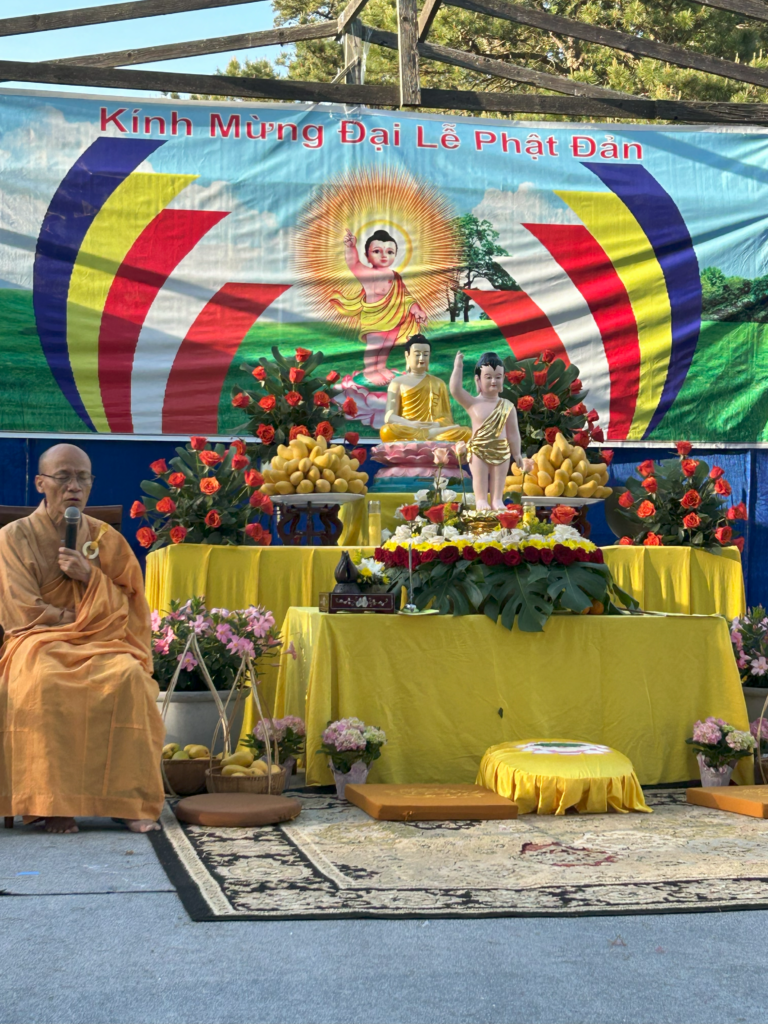
“That is why the Buddha said those kinds of minds are poison that harm us and others. Without controlling the mind, without using meditation practice or any kind of Buddhist practice, it’s not easy to tame them. We harm ourselves and others. So that’s why Buddhism focuses much on the practice, not as much on the principal doctrines.”
The crowd was invited to take part in the Buddha Bathing ceremony, each participant receiving a parting gift of bottled water and fresh mango. But food was hardly scarce as volunteers set up their community potluck, providing Vietnamese vegetarian cuisine for the entire crowd, including the popular banh mi sandwiches and pho noodles.
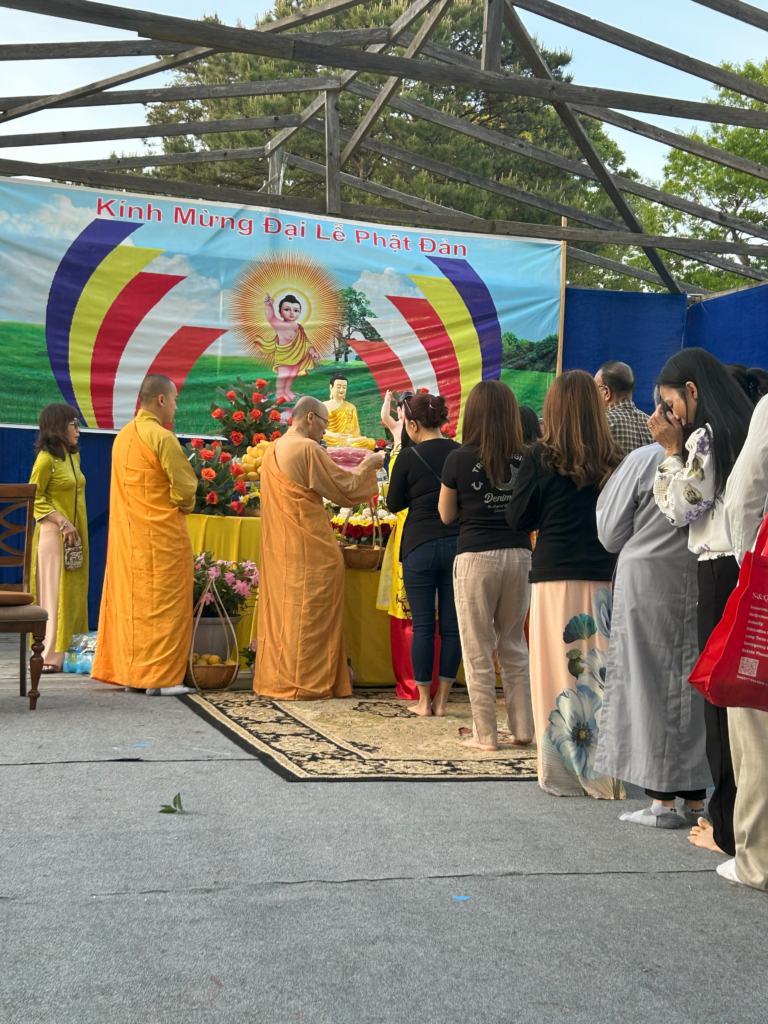
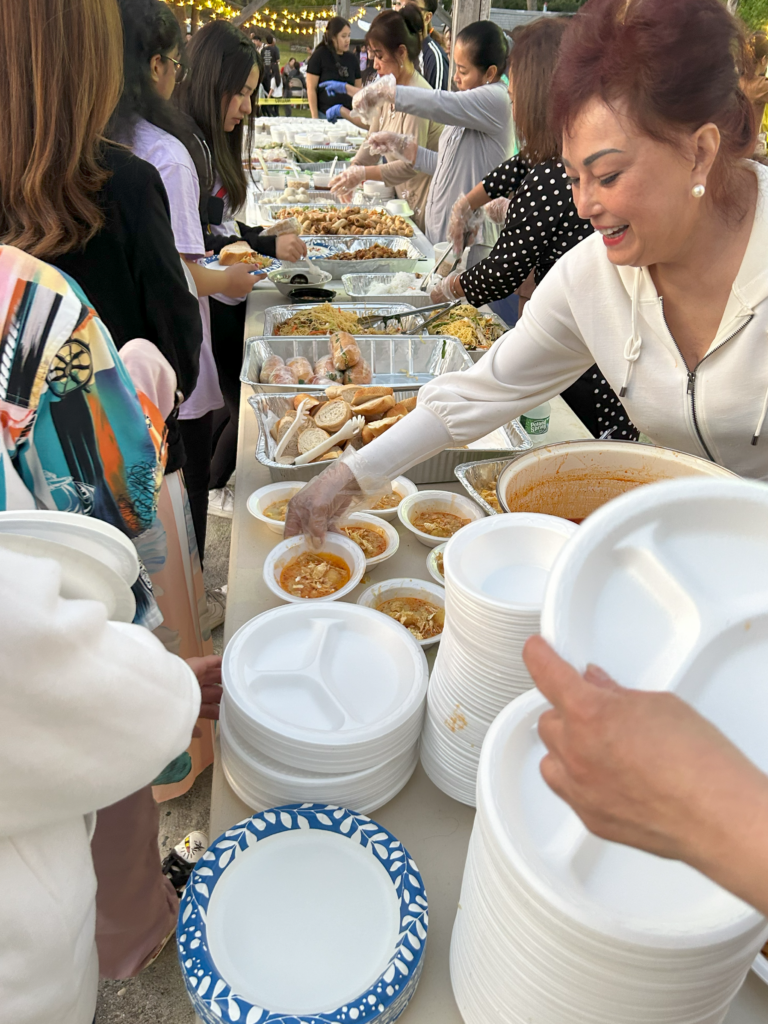
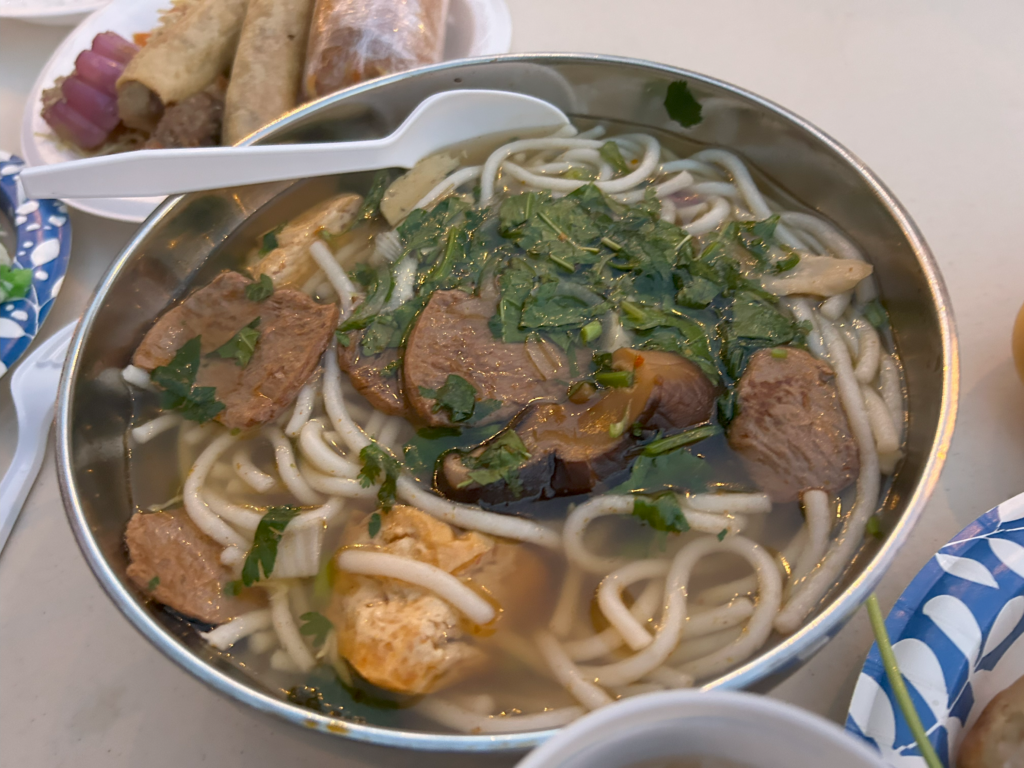
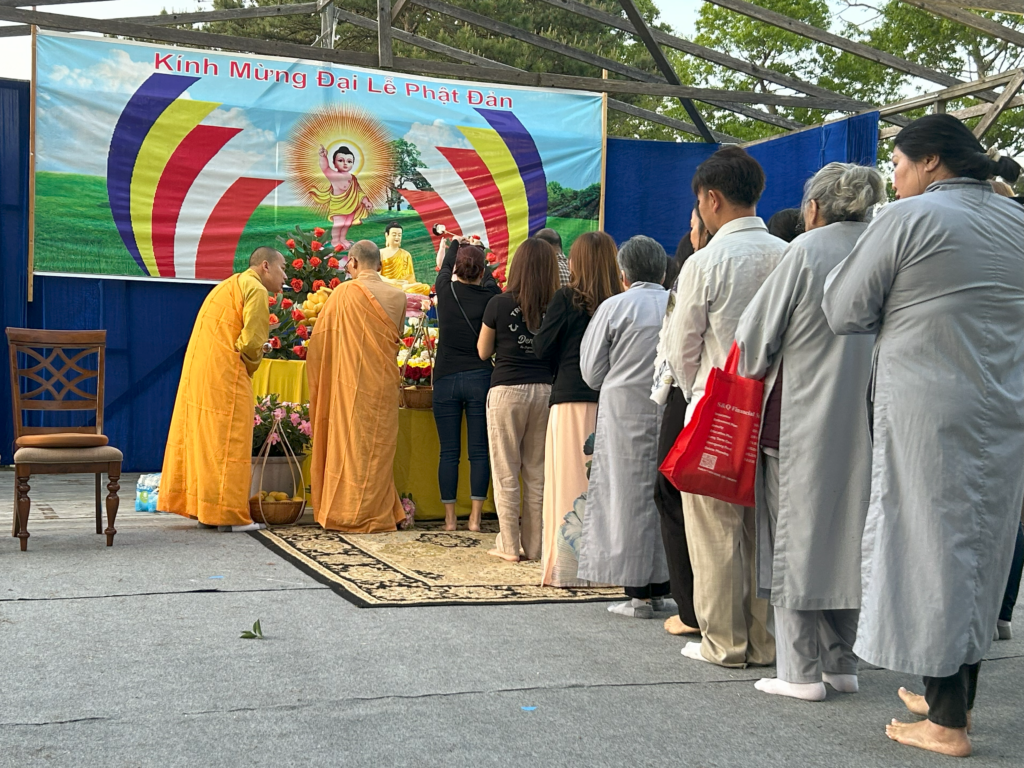
Thanh Tu Meditation Center (Thien Vien Thanh Tu)
The holiday began in Williamstown on the evening of May 26 with a parade of vehicles decorated with lights and flowers with the baby Buddha image placed on top. Drivers followed each other all through town, putting on quite the light show for other motorists.
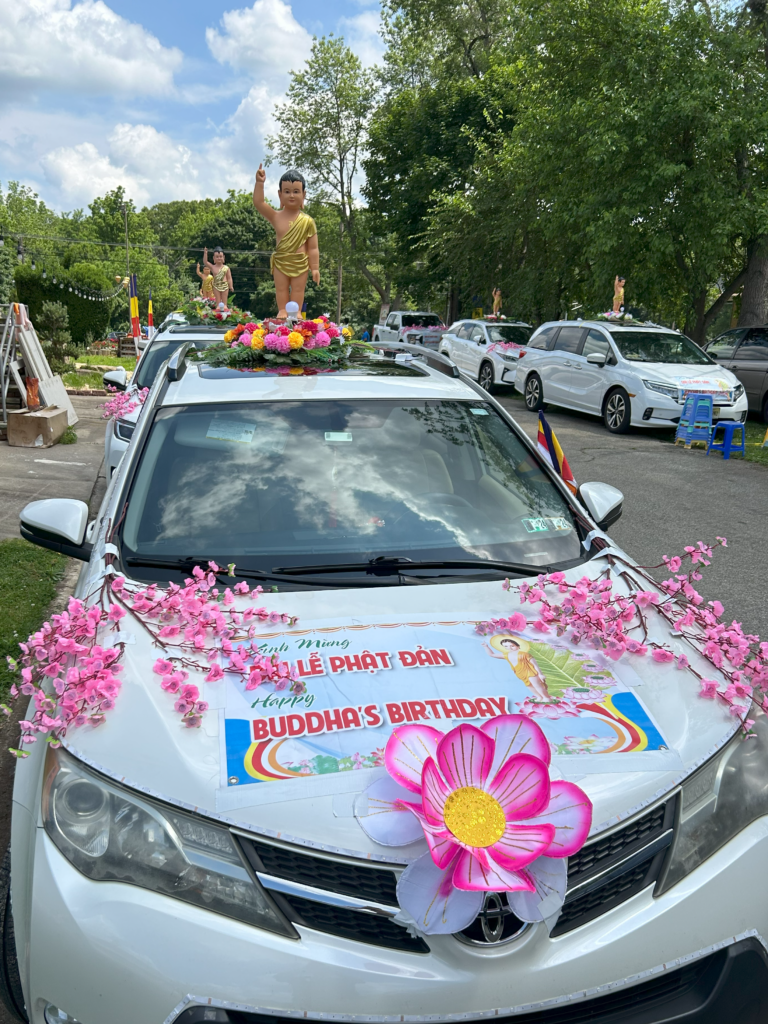
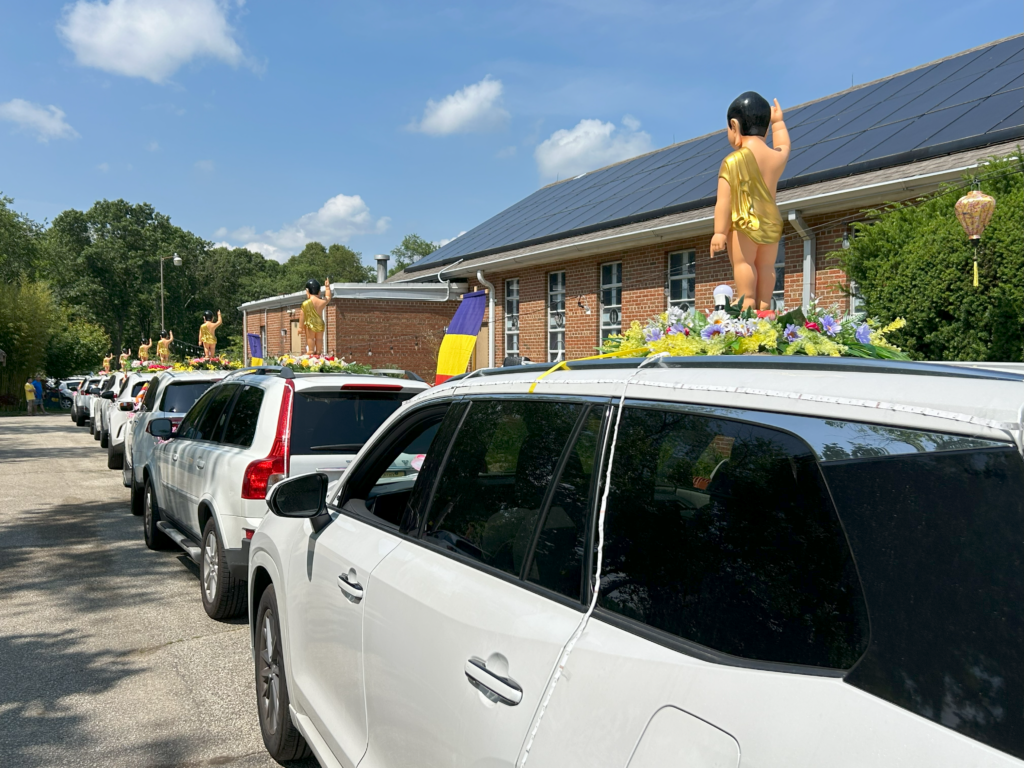
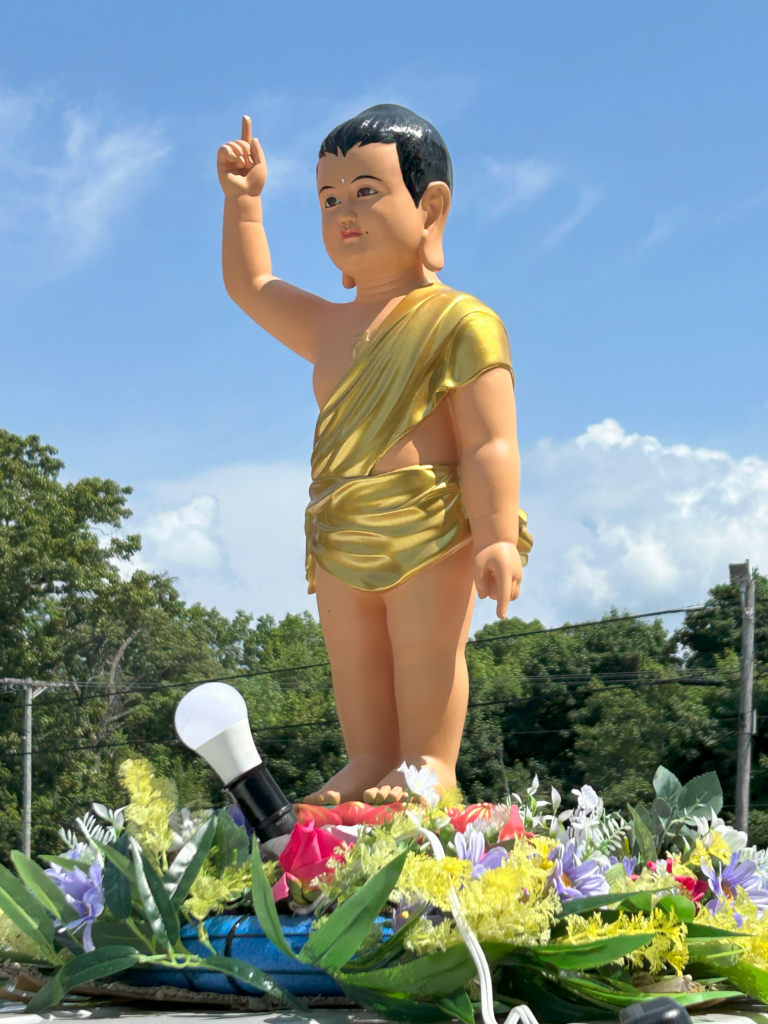
But the next day was the main event, with nearly 400 attendees from across the Tri-state area. Once again, the space was filled with performers, mostly singers, but the temple grounds also hosted various food vendors who were eager to share their goods with hungry visitors.
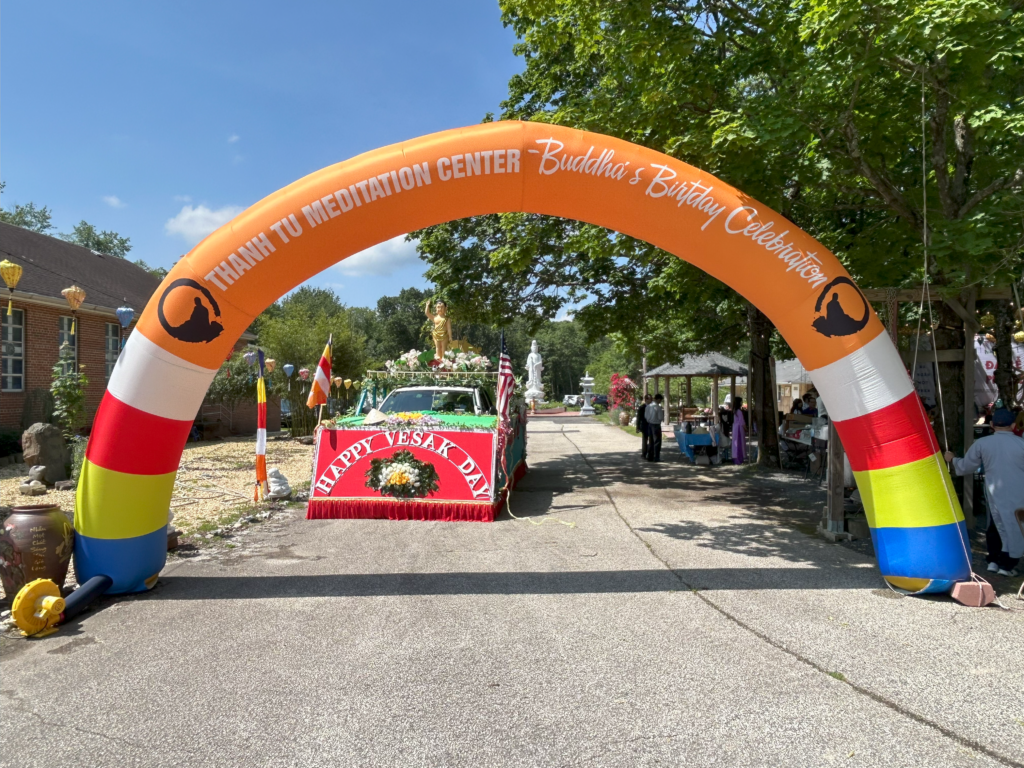
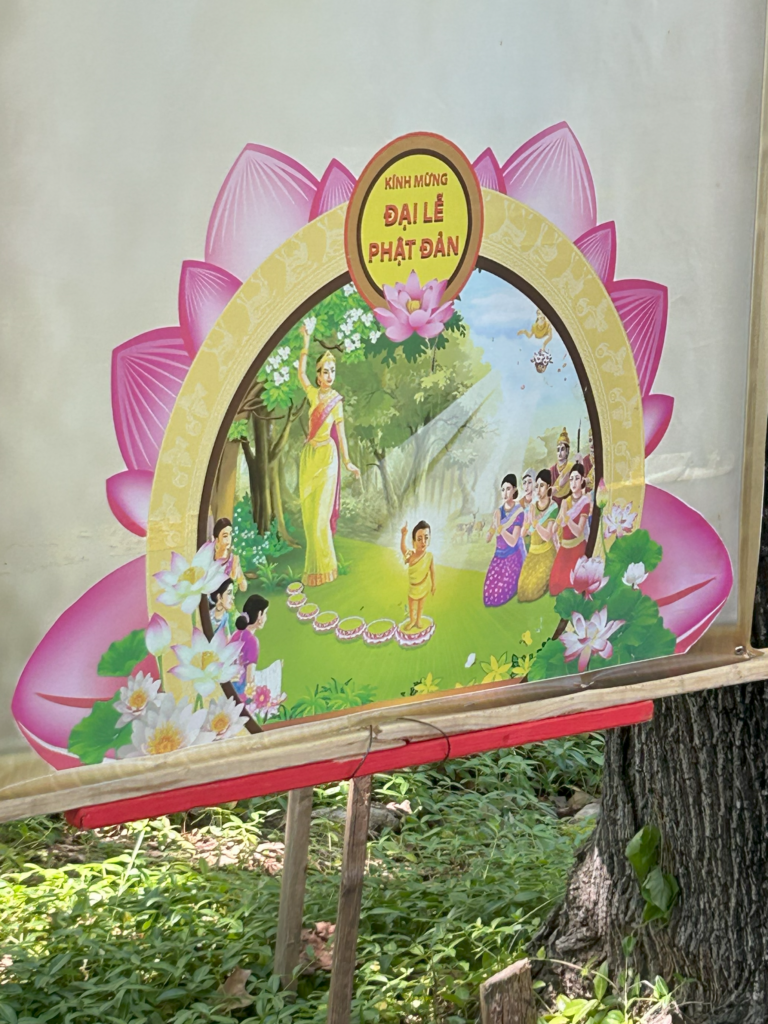
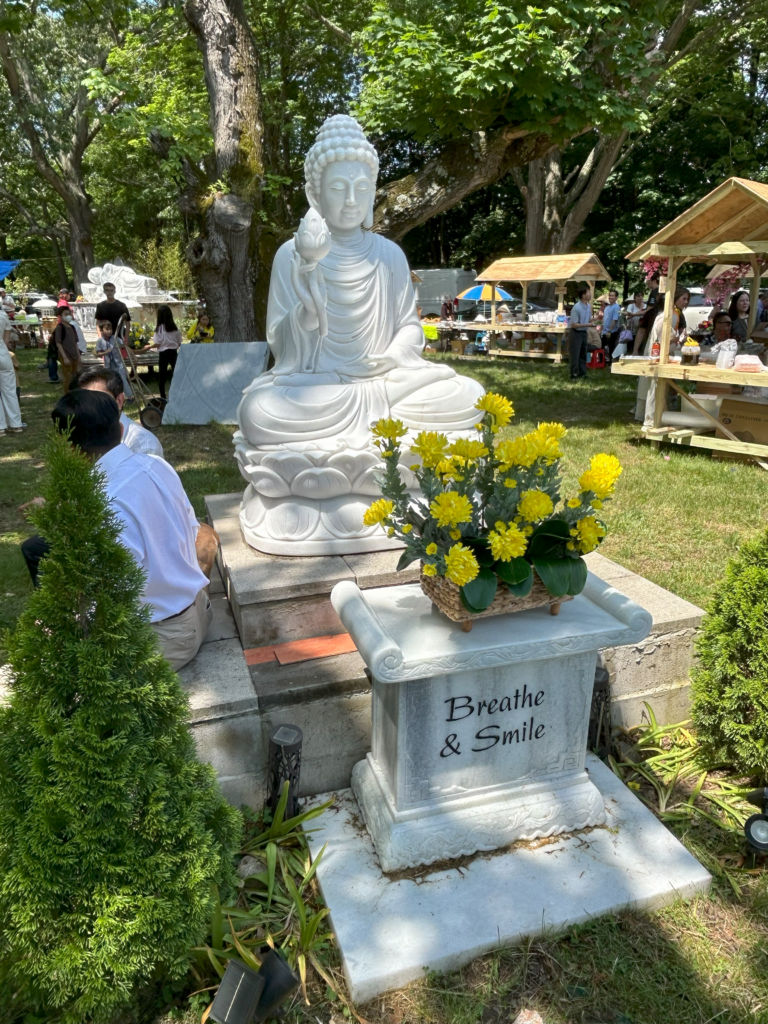
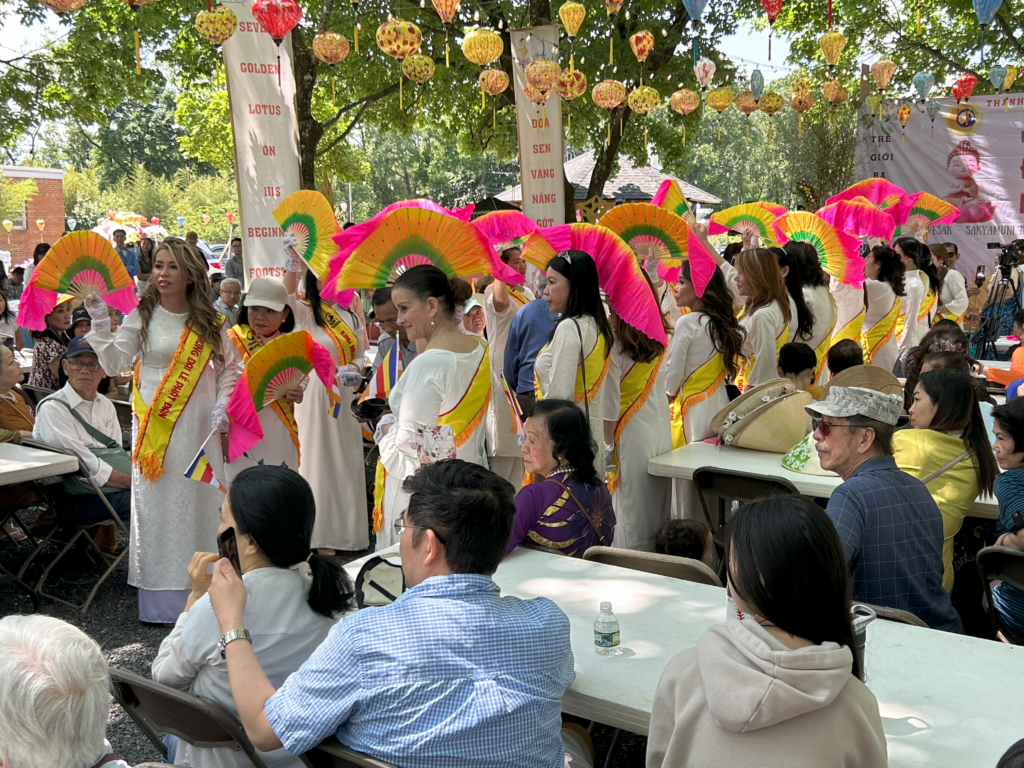
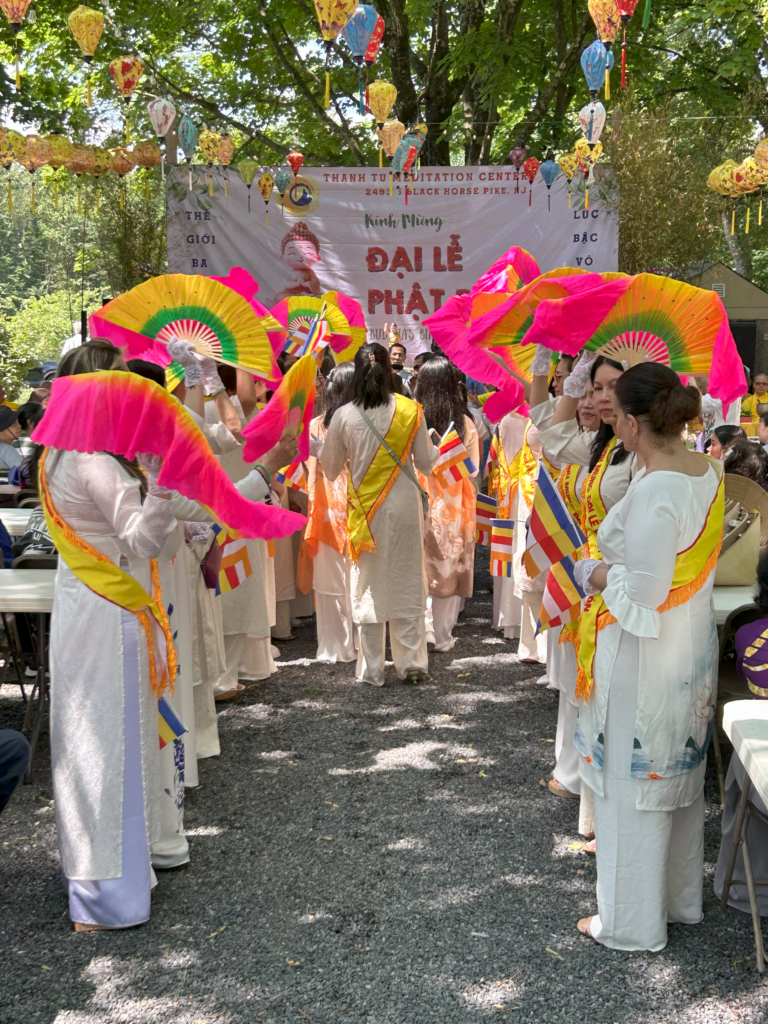
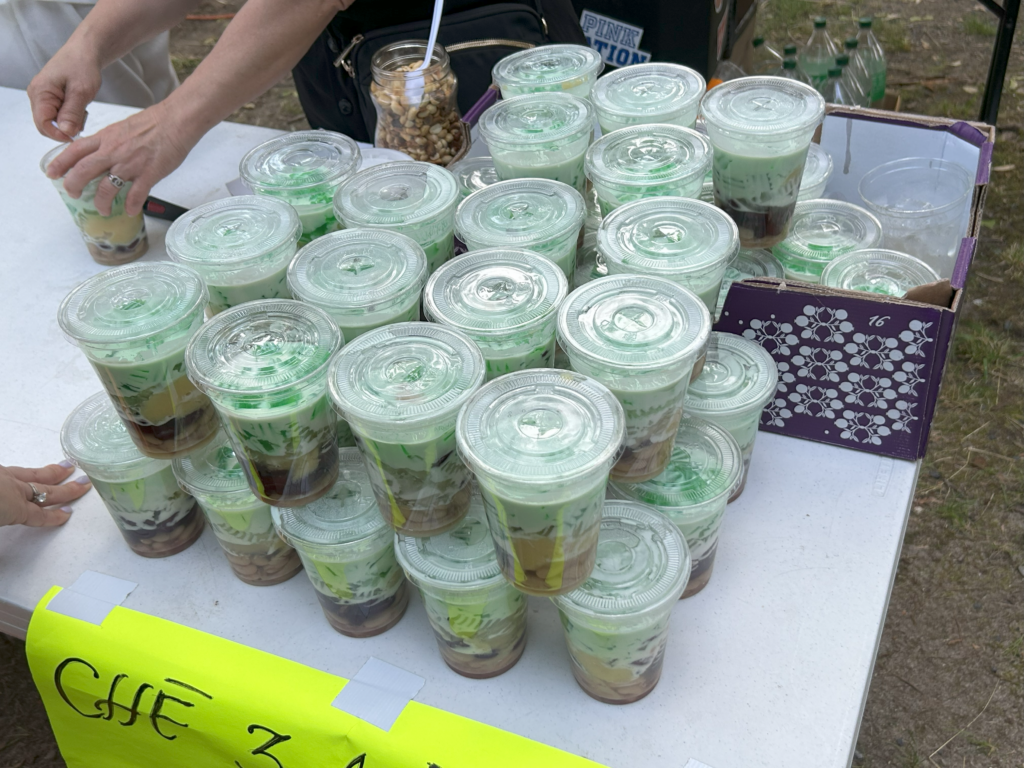
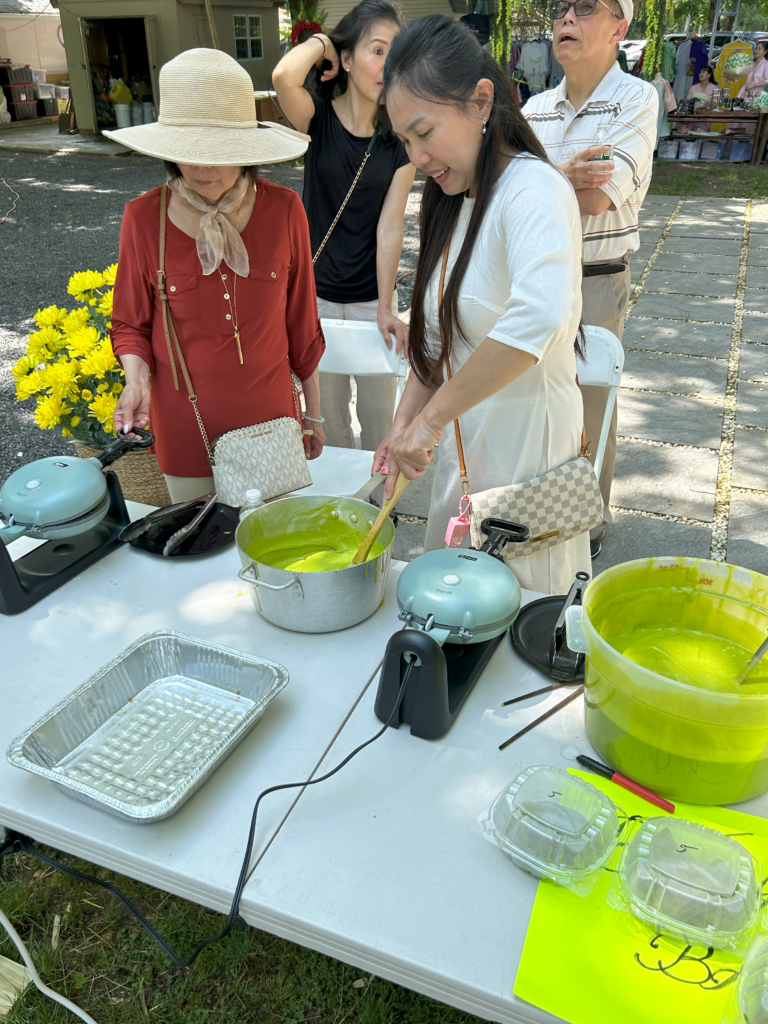
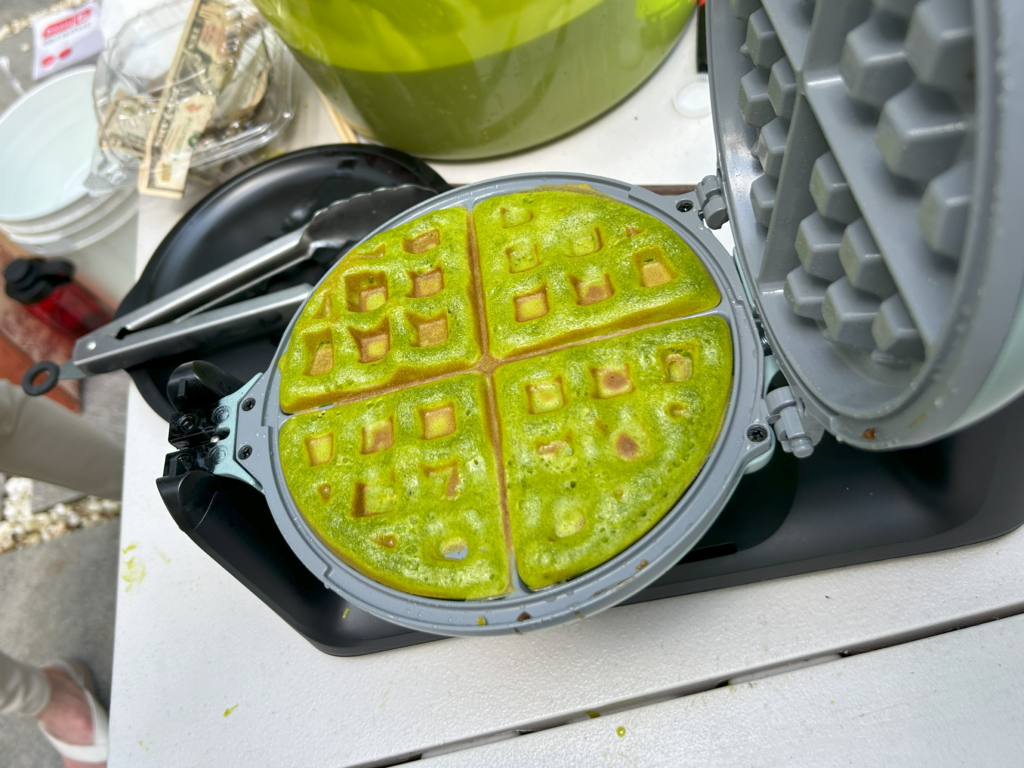
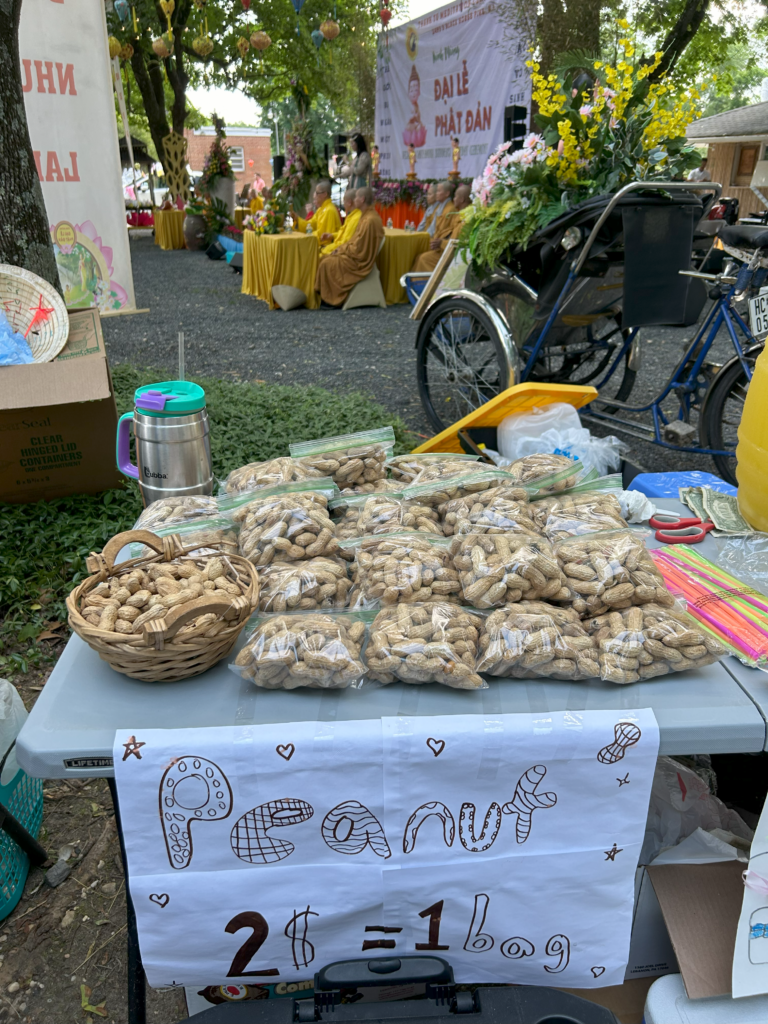
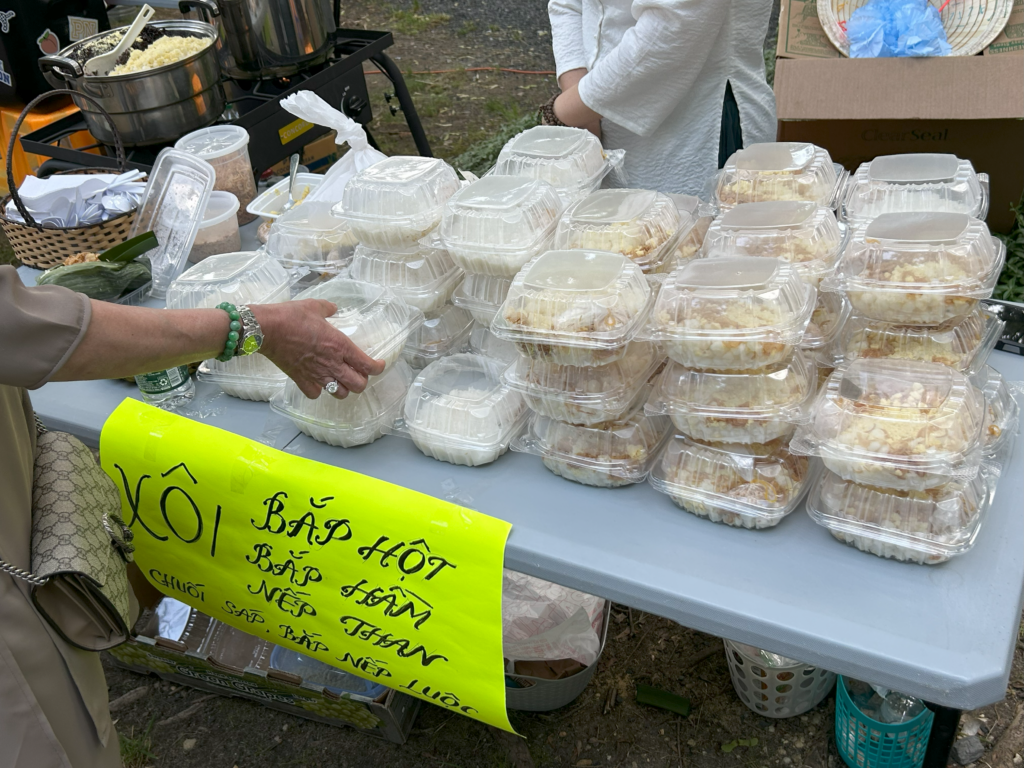
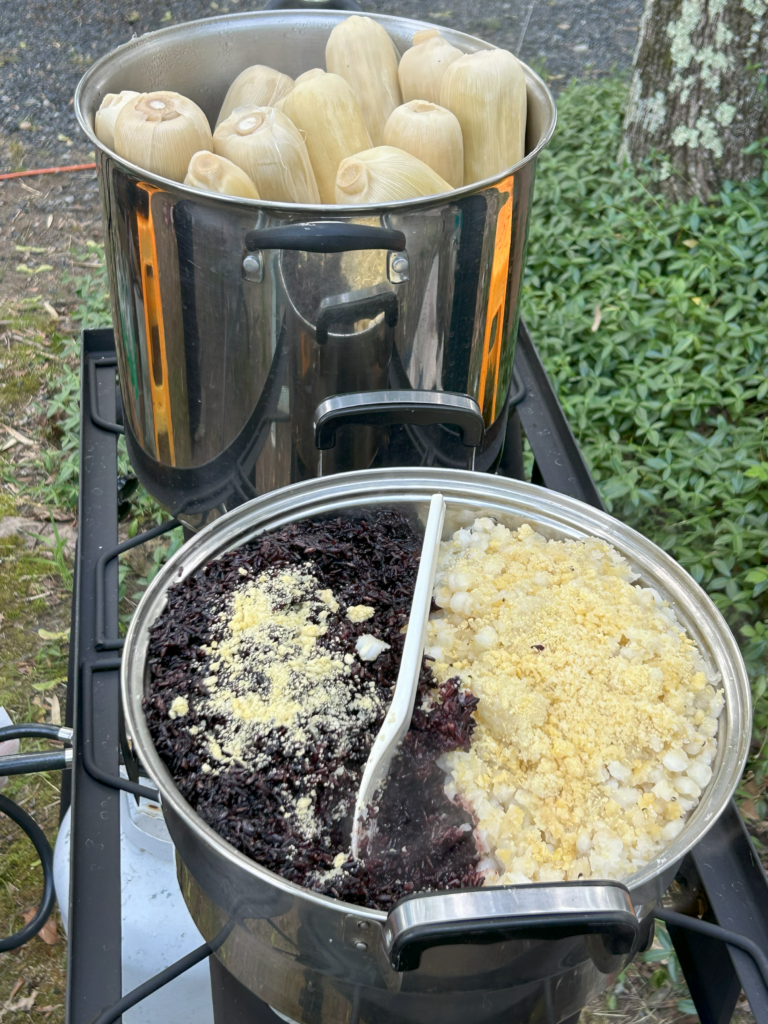
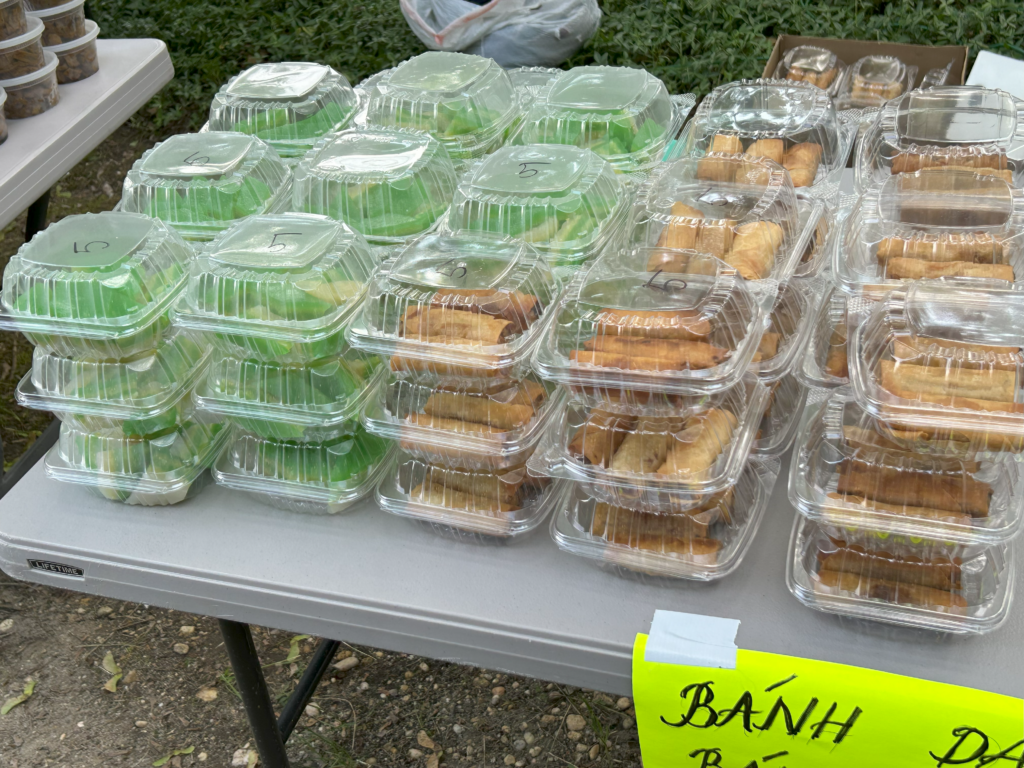
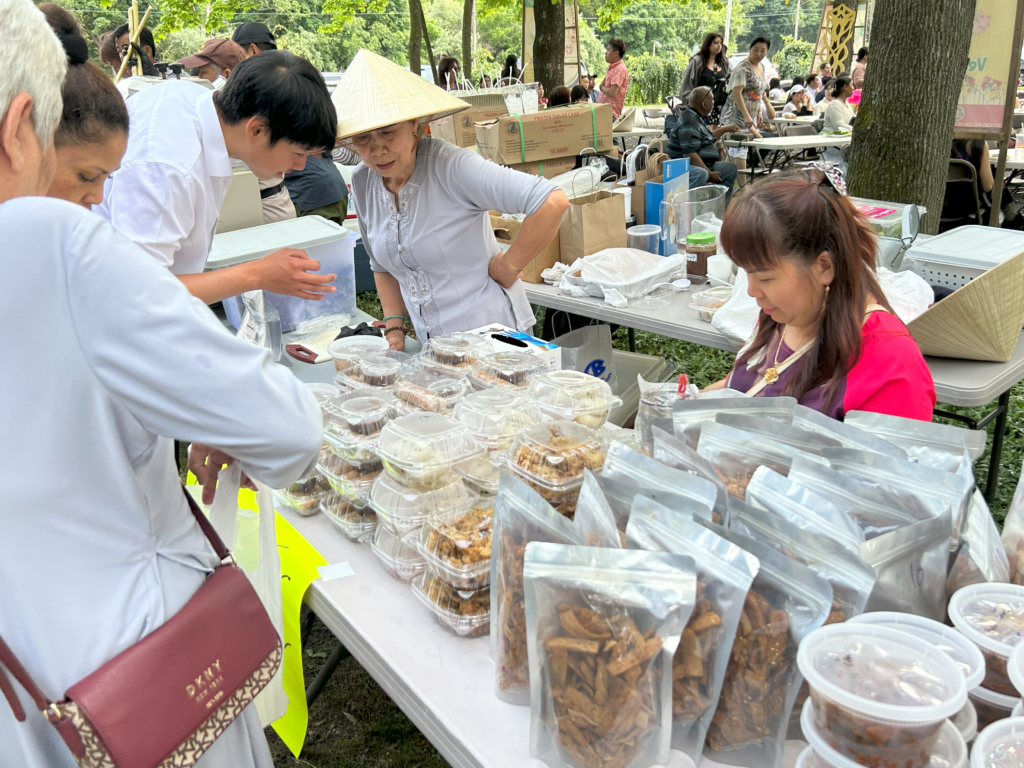
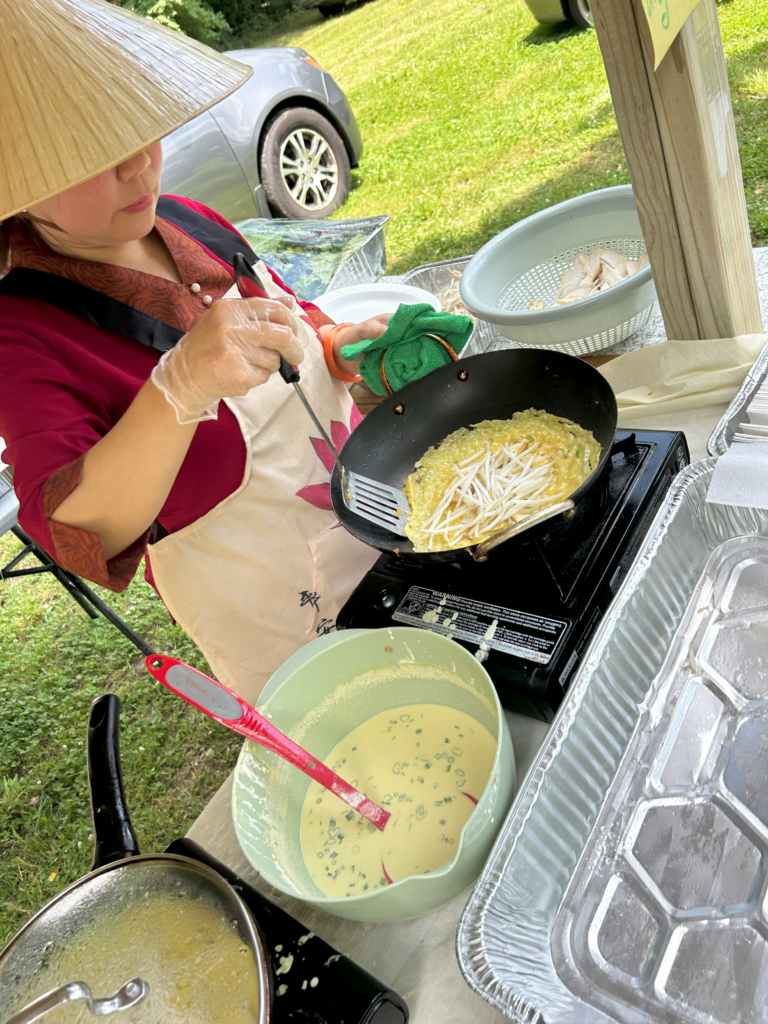
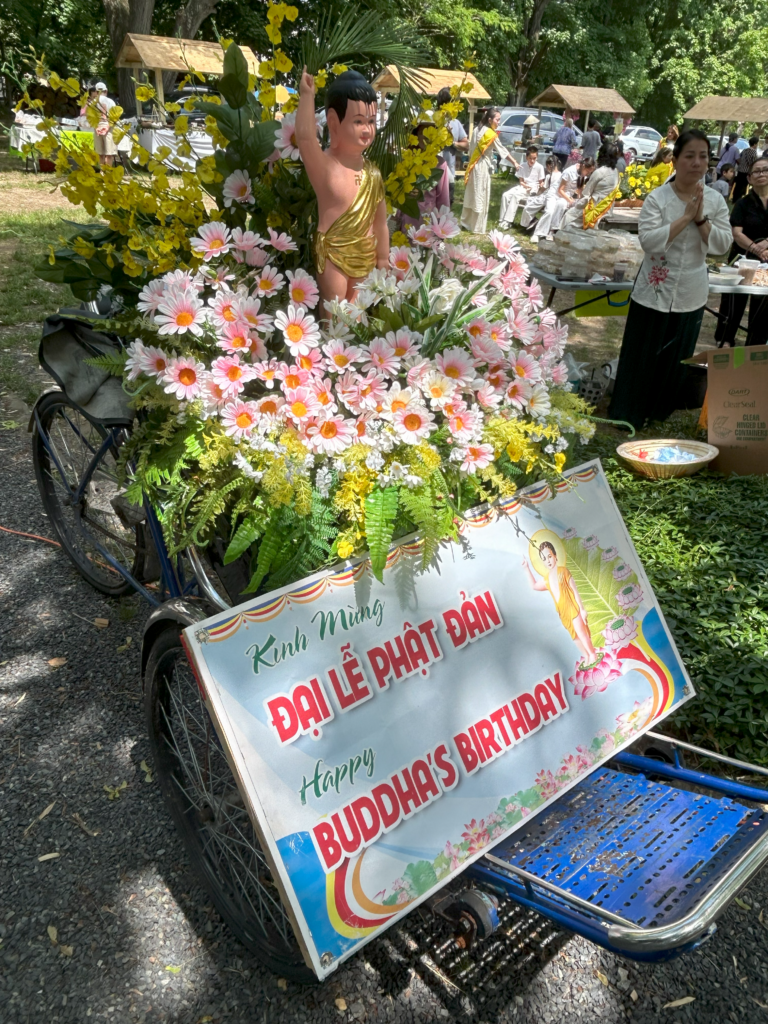
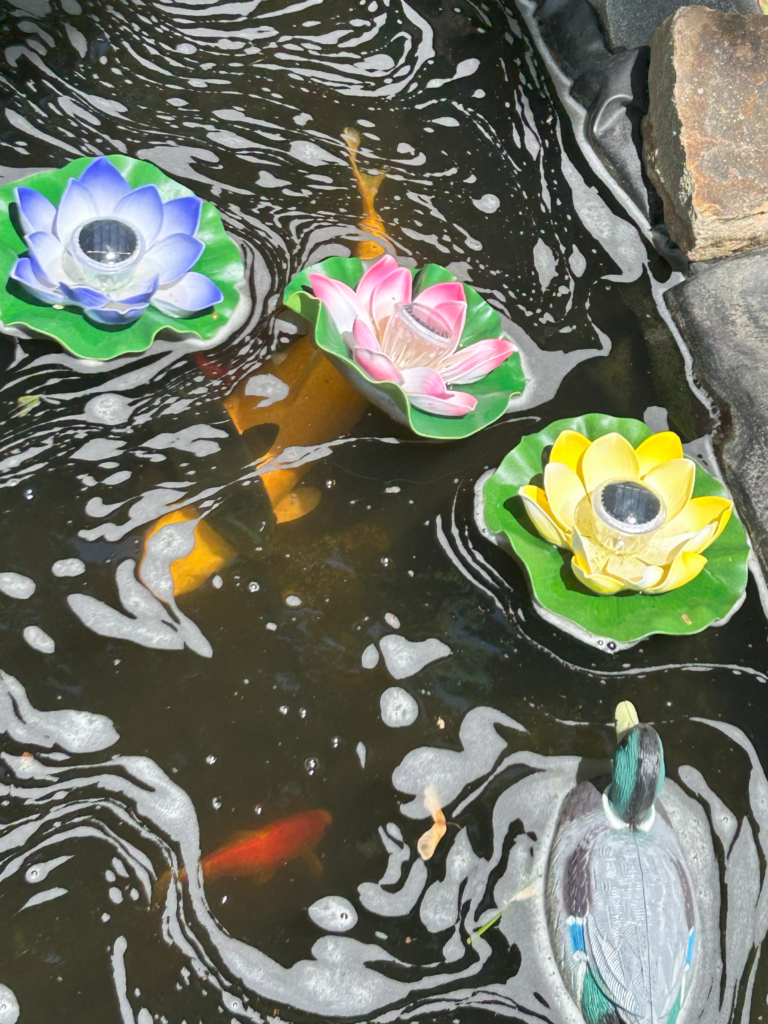
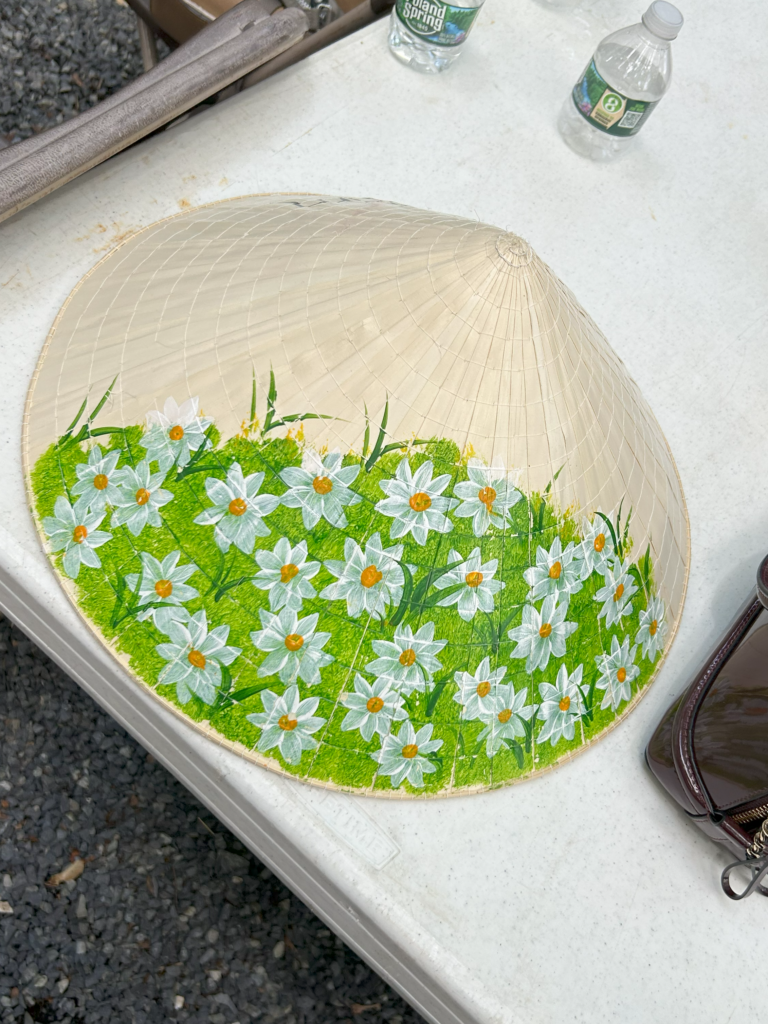
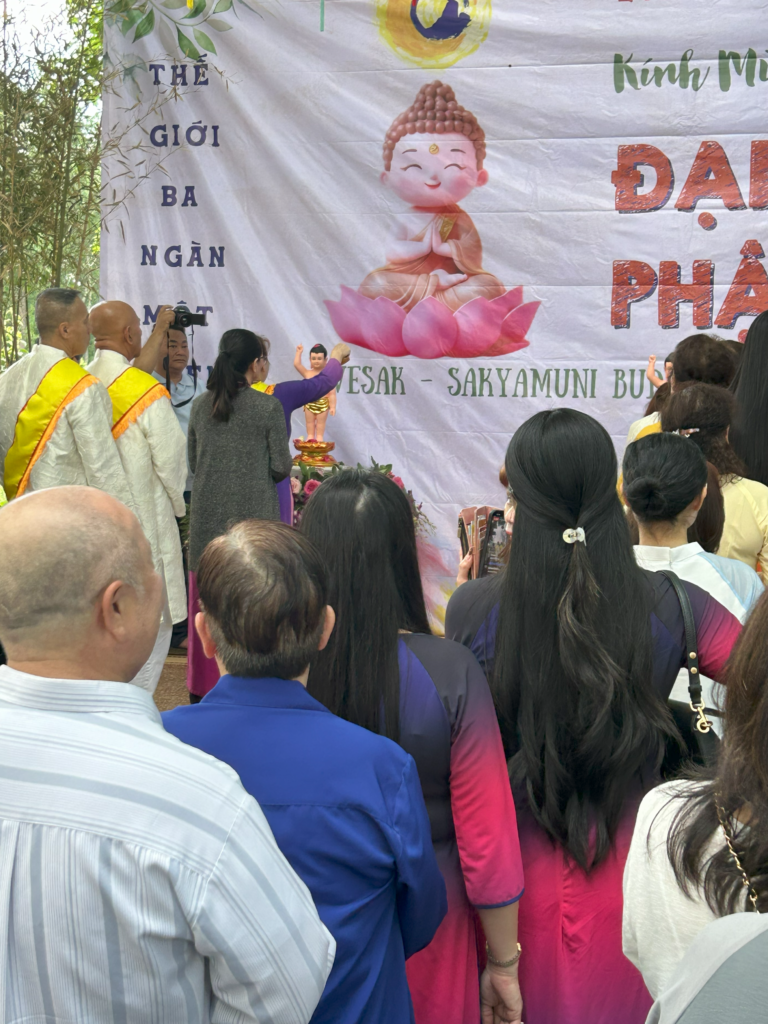
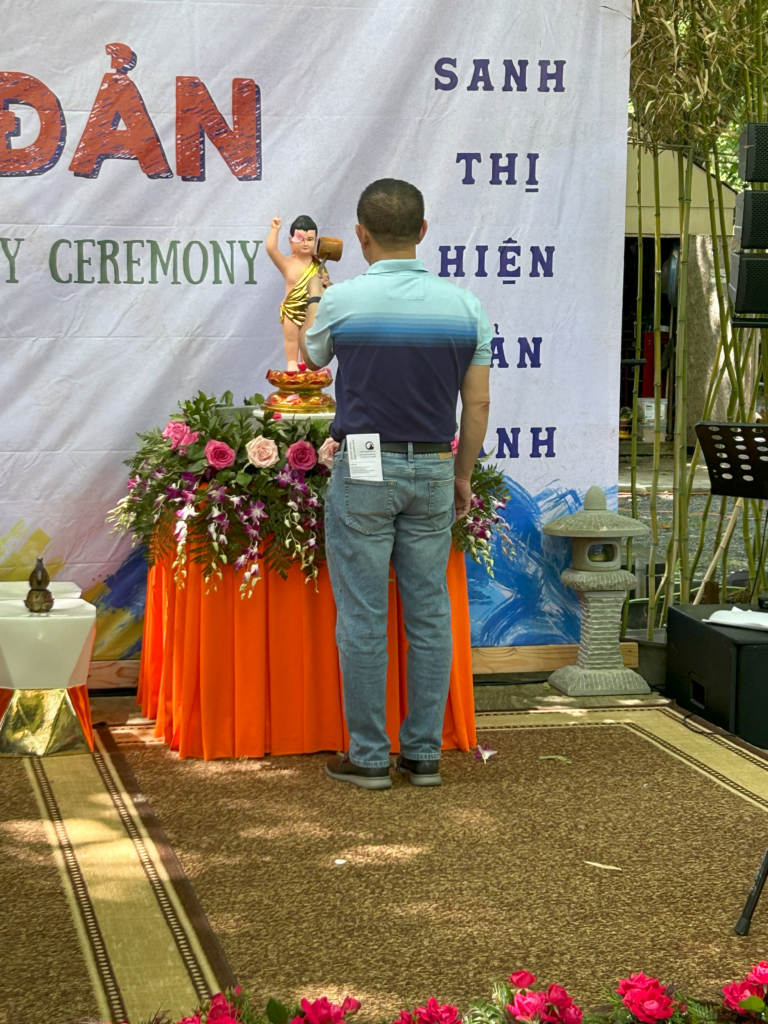
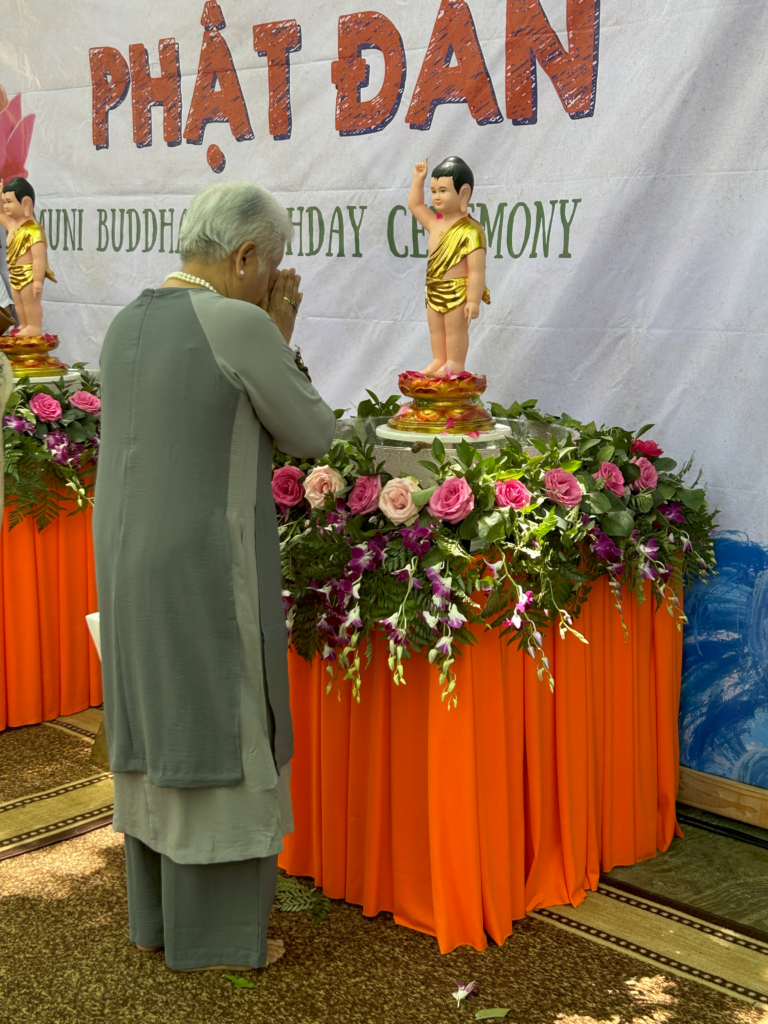
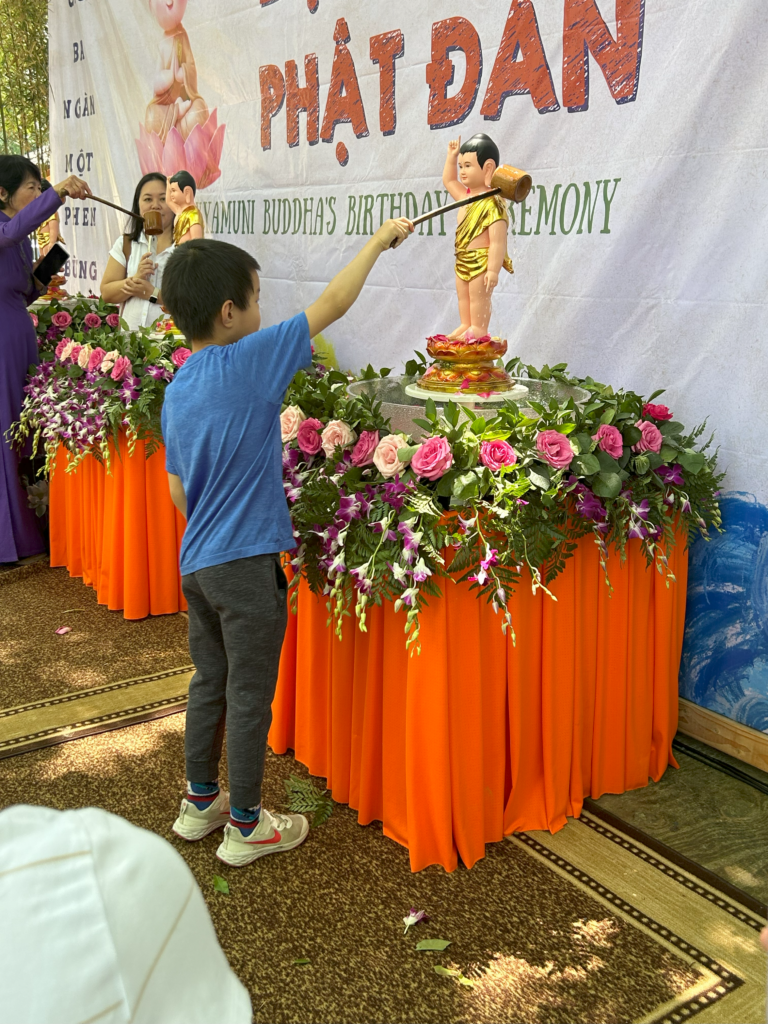
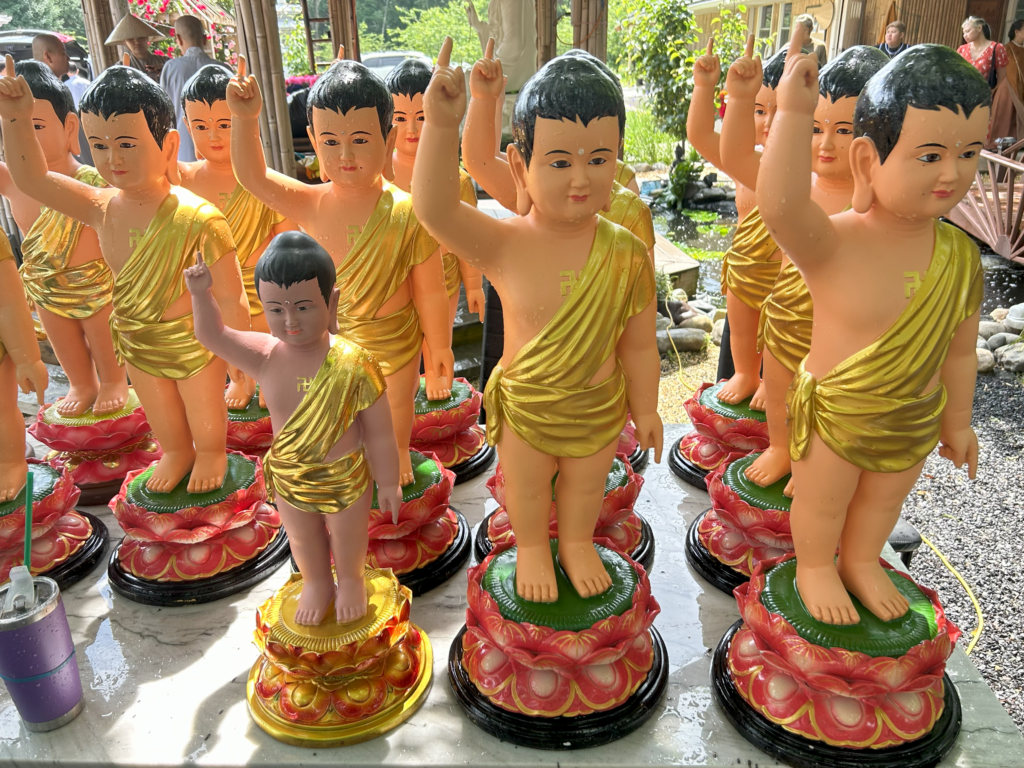
Ven. Thich Tue Phat (pronounced “Tick Twe Faht”) is the abbot of Tanh Tu, and belongs to a lineage with ties to Thich Nhat Hanh, a prolific author, and peace activist who became world-renowned for popularizing Vietnamese Buddhism in Europe and the U.S. Thich Nhat Hanh shared the same teacher with a monk who was the teacher of the abbot at Thanh Tu, a monk who is still alive after living 100 years in Vietnam.
“When I came to America, I met Thich Nhat Hanh,” said Phat, who also goes by “Thay” which means “Teacher.” “[He was] very loving. When he passed away, all the monks loved him, and did anything [they could] to give us [instruction] about meditation.”
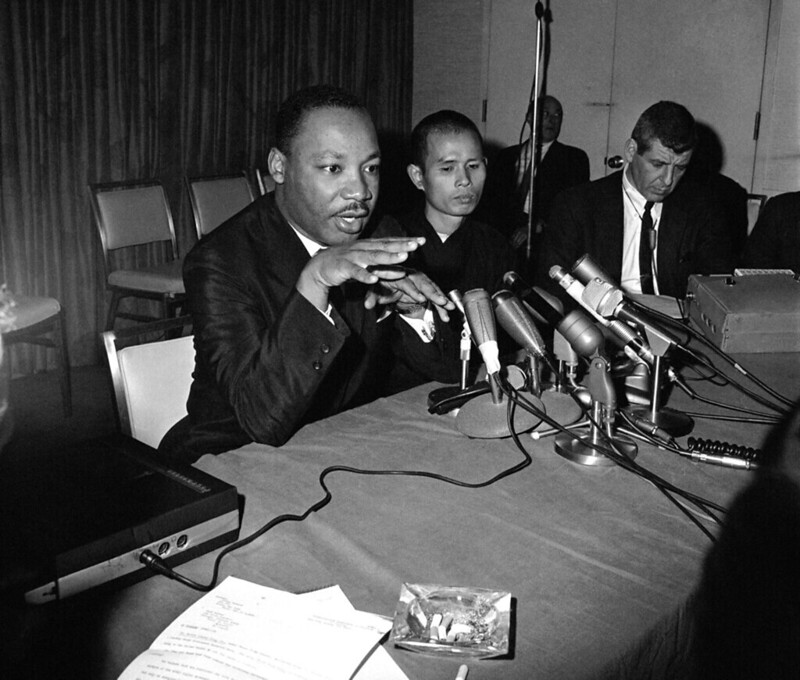
One of the celebration’s attendees was Madeline Mojica, a 3rd grade English teacher at Lindenwold Public Schools in Camden County and member of the temple since 2019. She related to Front Runner New Jersey a moment shared between her and her teacher, Thay Phat.
“He was planning to [arrange] the flowers, and I visited the temple to make sure if I should help or not. Doing his flower arrangements was meditation. I could see he was just quietly doing the flowers. So I didn’t want to disturb him. But then I looked at him and I just sat. I kept handing him the flowers, cutting the flowers, without saying a word for like 20 minutes or a half hour. That’s the experience. That’s what it was like, and I can’t explain it, but it was more than a lecture somewhere, because I watched him very quietly. I knew he was meditating. I was aware of him. I didn’t even talk to him, but at the same time he welcomed me into that and we created it together. I felt like that was really interesting.
“We didn’t think we were just sitting on a mountaintop somewhere meditating,” Mojica continued. “It’s that everyday, everything that you do is meditation. You’re present and in the moment. Engagement is here in this moment. If we’re sitting here right now, I’m not worried about a single thing that’s going on. We’re here. I didn’t even expect this, so it’s so nice, but that’s where I’m at.”
Mojica also informed Font Runner New Jersey about the Vietnamese appreciation for Americans interacting with them in their cultural spaces — many even befriended or married troops they met during the Vietnam War — as well as an affair that hit hard in the community some time ago.
“They’re so welcoming and they’re so appreciative of our interest in them. Just recently, an incident took place where there was a crime down at one of the temples, not in our area. In Texas, which is down further away, one of the monks was murdered. I remember, it was just like, to me, they operate [as] so welcoming with doors open, and they have that way about them and they are pleased that people were aware of it. They were driving through and you see Thay like he knew he had to lock his door, but he always felt like he didn’t want to stop someone from coming if they needed to come.”
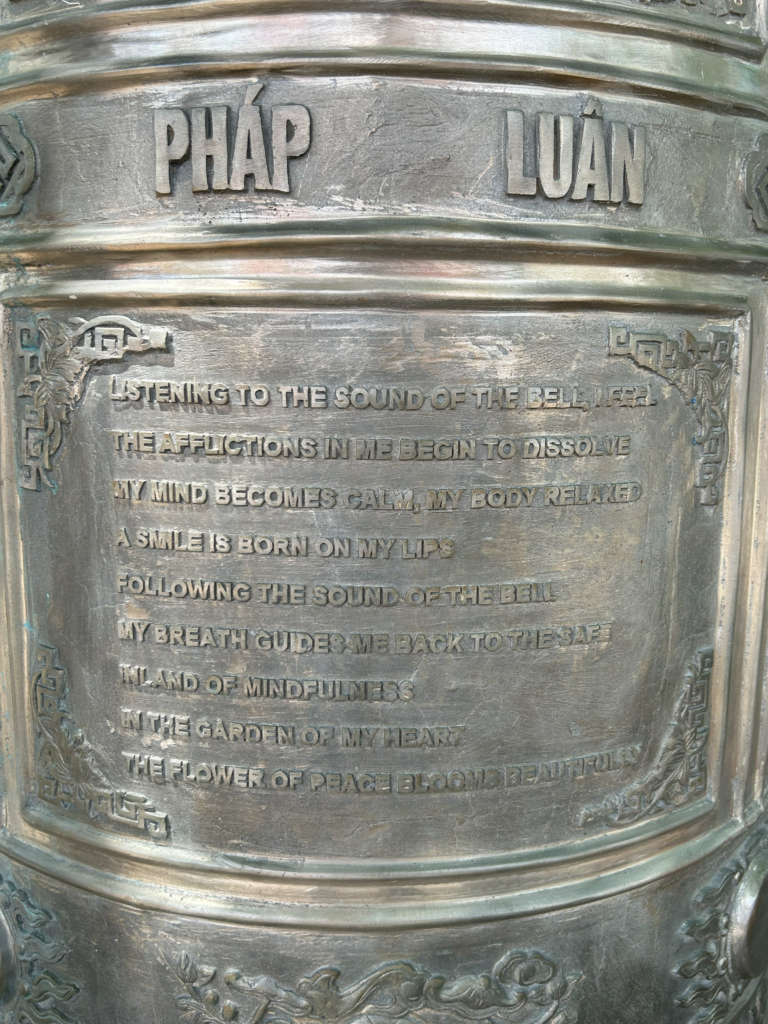
“I want anybody to come to the temple, not just my temple, but any temple, to practice Buddhism,” the abbot said. “Because if you’re not practicing, you won’t know how to [live] without stress and worry. The Buddha’s teaching is about the way to [develop] a strong mind. That’s why we need to practice meditation everyday. If you have time, you need to have about 30 minutes or one hour of meditation. Your mind and your body come together here. That is the Buddha’s teaching. Everyone comes to the temple to help people.”
Population in New Jersey
According to the Association of Religion Data Archives, a study done in 2020 revealed that about 17,563 Buddhists reside in New Jersey, making up an adherence rate of 1.89% within the state. Mahayana Buddhism is the largest denomination, historically most prevalent in East Asian countries, such as China, South Korea, Japan, and Vietnam.
Vietnamese Americans rank among the largest AAPI groups in New Jersey, with significant numbers in Pennsauken Township, Atlantic City, and Camden among South Jersey cities. A survey done in 2020 estimates around 24,064 Vietnamese in the state. As of 2010, more than half of that population resided in Atlantic, Camden and Middlesex counties.
EDITOR’S NOTE: Daniel Winner has a double major in Religious Studies and Japanese from Penn State University and has traveled internationally to the Far East on several occasions. He will be attending Dharma Realm Buddhist University in August 2024 to participate in the Certificate Program in Buddhist Translation. His insights on religious traditions and Asian culture give a unique view of historical and modern trends. He will be serving as a contributor for Front Runner New Jersey.
Note from AC JosepH Media: If you like this story and others posted on Front Runner New Jersey.com, lend us a hand so we can keep producing articles like these for New Jersey and the world to see. Click on SUPPORT FRNJ and make a contribution that will go directly in making more stories like this available. Thank you for reading!
